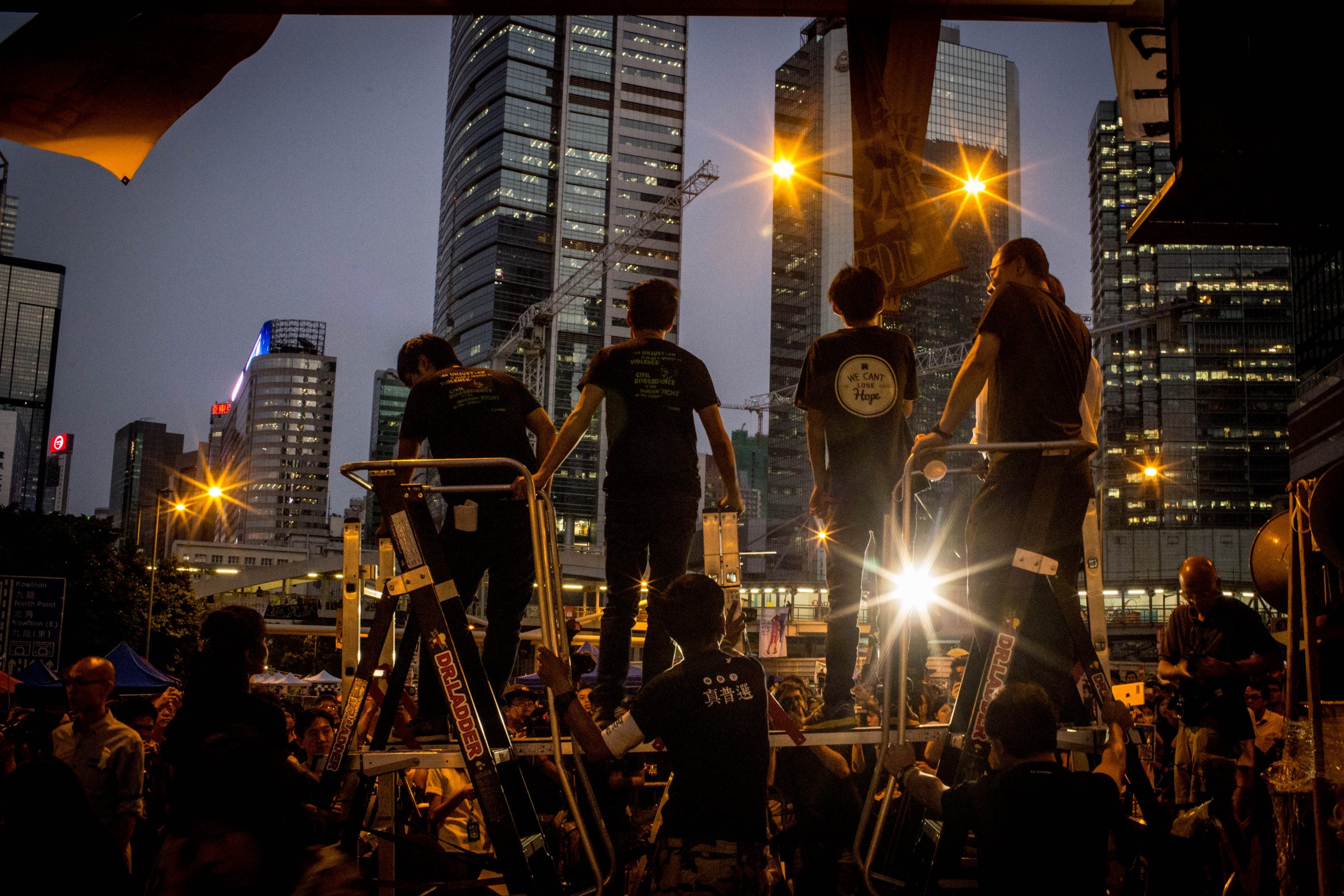
Even cautious optimism for a breakthrough in the conflict between pro-democracy protesters and the Hong Kong government faded on Thursday night, with the government canceling talks with student protest leaders and students pledging to surge demonstration numbers with a Friday night rally.
Chief Secretary Carrie Lam, who was due to meet with leaders of the Hong Kong Federation of Students (HKFS) on Friday, said at a press conference Thursday that the student-led movement had violated the terms of talks in refusing to accept any outcome besides a tabling of Beijing’s electoral stipulations. Those call for the vetting, by a pro-Beijing committee, of all candidates for Hong Kong’s top job in the next elections in 2017.
“Unfortunately, the protesters rejected the rational proposal and went back to their old position,” said Lam, criticizing protesters’ pledge to remain in the financial hub’s streets until their demand was met. “This is sacrificing public good for their political demands.”
The students and other pro-democracy groups want the chief executive, as the head of government is called, to be directly elected from a pool of candidates nominated by Hong Kong’s 3.5 million registered voters.
Demonstrators have continuously occupied key areas of the city over the past 12 days, staging at times massive rallies in the most significant Chinese protests since the student occupation of Beijing’s Tiananmen Square 1989.
The abrupt cancellation of the much anticipated meetings came just hours after Alex Chow and Lester Shum, both of HKFS, joined leaders of three other pro-democracy groups in urging demonstrators not to leave the streets ahead of the talks — which at that time were thought to be still going ahead. The four groups also announced a rally to be held simultaneously with the now canceled meeting on Friday.
Beijing has made it clear that it will not heed the students’ demands, and the Hong Kong government’s position is that all discussions with the students must take place within the framework of the territory’s miniconstitution — a Beijing-ratified document known as the Basic Law.
The students, on the other hand, are interested in shifting the entire political paradigm, and creating, in effect, an autonomous enclave run on modern democratic principles. For this reason, there was scant optimism on the streets for a productive outcome to the talks, even if they were to go ahead.
Still, the abrupt cancellation came as a surprise to key figures in the pro-democracy movement.
The government has not given “any concrete proposal for solving the problem that the government made by itself,” the HKFS’s Chow told the press on Thursday night, calling the cancellation an “international joke.”
Chow, who said the student camp had been fully willing to meet with Lam, also called for a continuation of the demonstrations, urging supporters to come out in greater numbers for a rally on Friday evening. A previous rally organized by protest leaders last weekend — ahead of fears that a police crackdown was forthcoming — attracted an estimated 100,000 people, plus an equal number of umbrellas and lit cellphones, held aloft in the night sky.
“I think [the government] are out of their minds,” Democratic Party chairwoman and lawmaker Emily Lau tells TIME. “They have to talk to the students. It’s the only way out.”
Democratic legislator Albert Ho says in a phone interview that the cancellation is “an excuse,” since “all along, they’ve known what our aspirations are.”
Ho also sharply rebuked the administration for failing to challenge the ruling Chinese Communist Party over its position, describing the administration of Chief Executive Leung Chun-ying as lacking “even in basic courage.”
“Challenging the authority of the central government seems to be beyond their imagination or capacity,” he tells TIME.
The Beijing government seems to be betting on a gradual end to the demonstrations, as public support wanes over disruptions to traffic and commerce, and as demonstrators, with schoolwork and jobs waiting, trickle out of the streets.
Since the beginning of the workweek on Monday, the demonstrations that once brought tens of thousands of people into Harcourt Road, a six-lane thoroughfare in the shadow of glitzy office towers, have receded into the low thousands at peak hours in the evenings. Still, numbers could easily rise again if the government attempts to crackdown on the movement.
Seeking to present themselves as a unified team capable of challenging Beijing, leaders from the civil-disobedience group Occupy Central, the HKFS and another student group, Scholarism, came together Thursday with the democratic bloc in the legislature, and announced that more coordinated acts of civil disobedience were in the works.
“The short-term burden on our daily life is to achieve long-term reform,” said Joshua Wong, of Scholarism.
Alan Leong, leader of the Civic Party, said that democratic lawmakers would use their control of two legislative subcommittees to block government requests for funds, except in emergency circumstances.
“We will make sure that our disobedience will be clearly felt,” he said.
Benny Tai, of Occupy Central, told the press that the main occupation site on Harcourt Road would henceforth be called Umbrella Square. Umbrellas, which were used by protesters to shield themselves from police pepper spray, have become the symbol of Hong Kong’s democracy movement.
The well-organized site is full of the accumulated trappings of 12 days of protests, including tents for sleeping, collections points for donated food and drink, “resource stations” where protesters can charge phones, first-aid posts, and recycling areas where plastic and paper is collected.
There are even “study zones,” equipped with lights and desks, where the mostly young protesters can catch up on schoolwork. Around the site are large banners, thousands of posters, and installations (including a large “Umbrella Man” statue). At its eastern fringe is the so-called Lennon Wall, covered with thousands of brightly colored Post-it notes from well-wishers.
Many protesters in the streets on Thursday evening said they remained committed to seeking an answer from Beijing.
“Of course our passions are fading out, but we will stay here,” said Donna Yip, 26, who works in marketing.
Tanya Tang, 20, a university student who was sitting in the road with two friends, making origami hearts out of paper marked with pro-democracy sayings, said that “it is up to the government how long I stay.”
“We have already stayed here for two, three weeks, so we can stay longer,” she said. “We haven’t gotten anything yet out of the revolution. We can’t go home now.”
—With reporting by Rishi Iyengar and David Stout / Hong Kong
Photographs of Hong Kong’s Umbrella Revolution
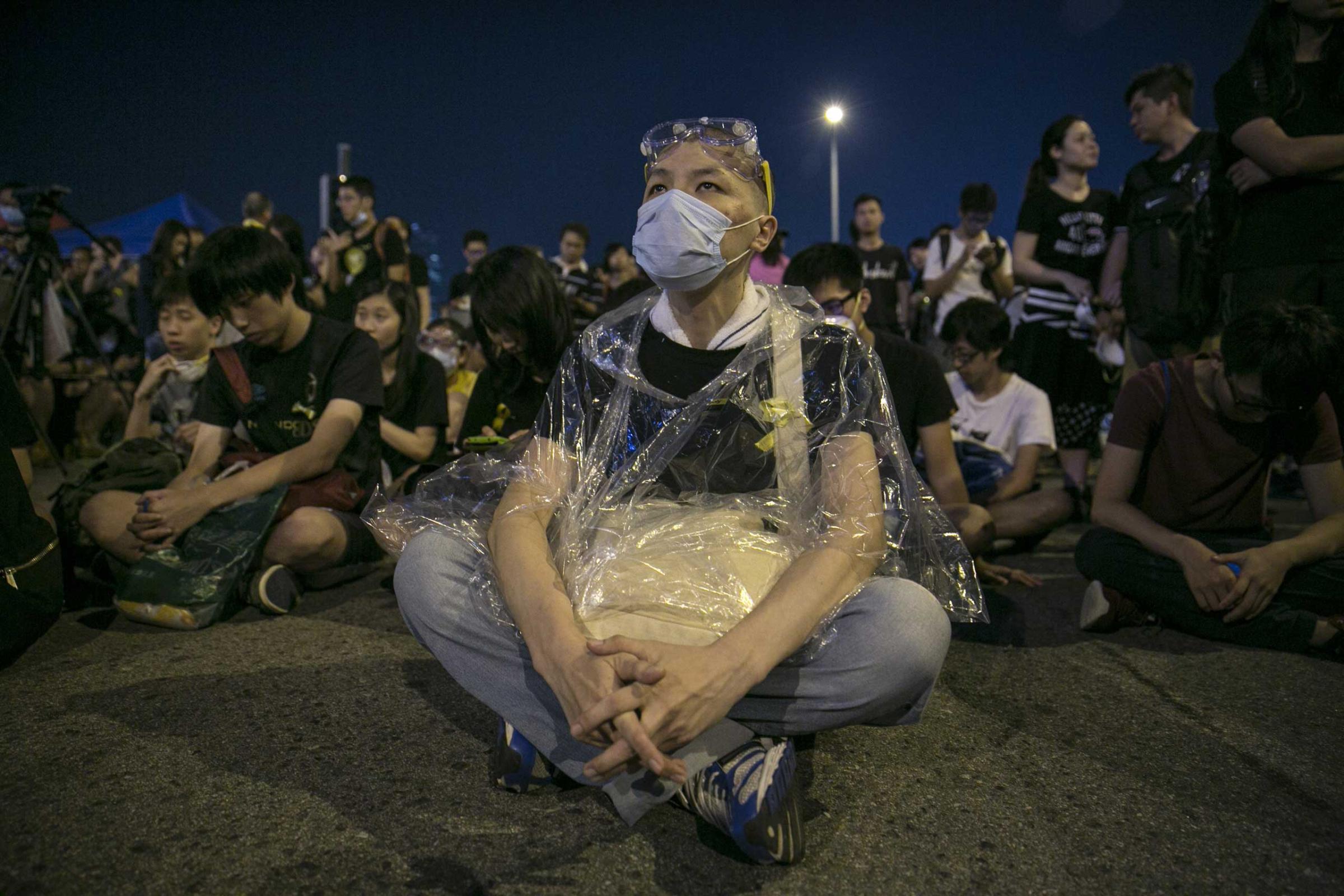
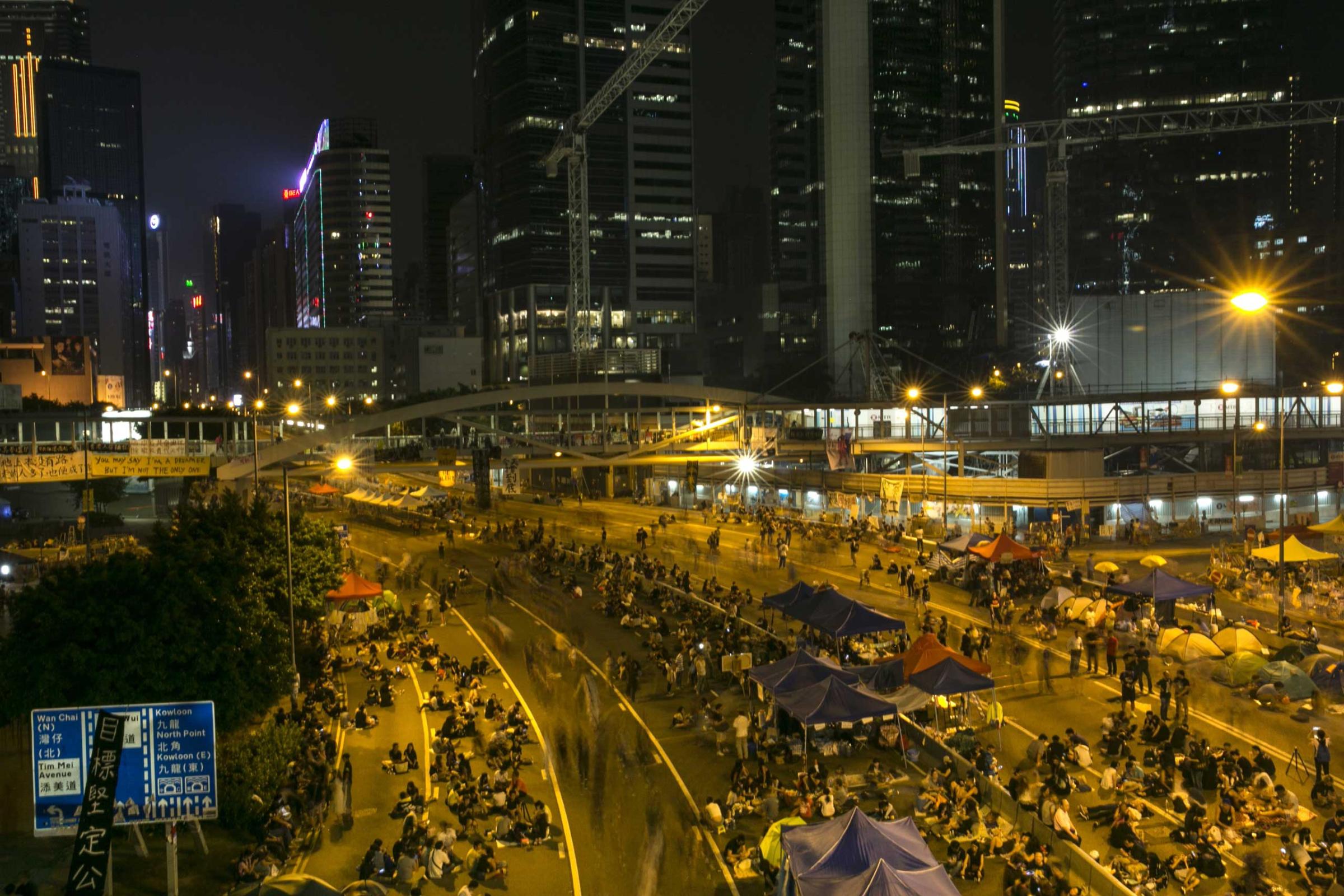
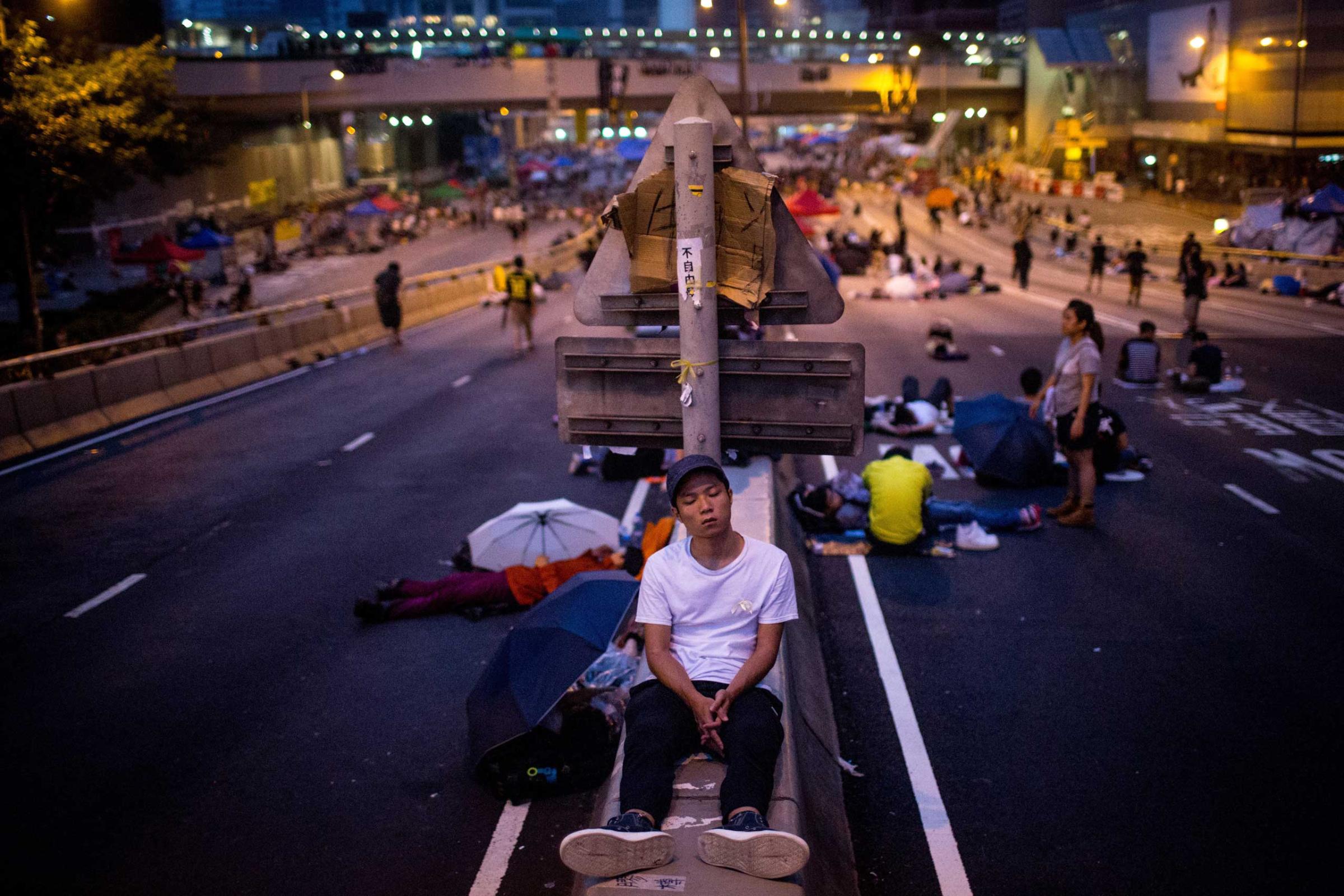

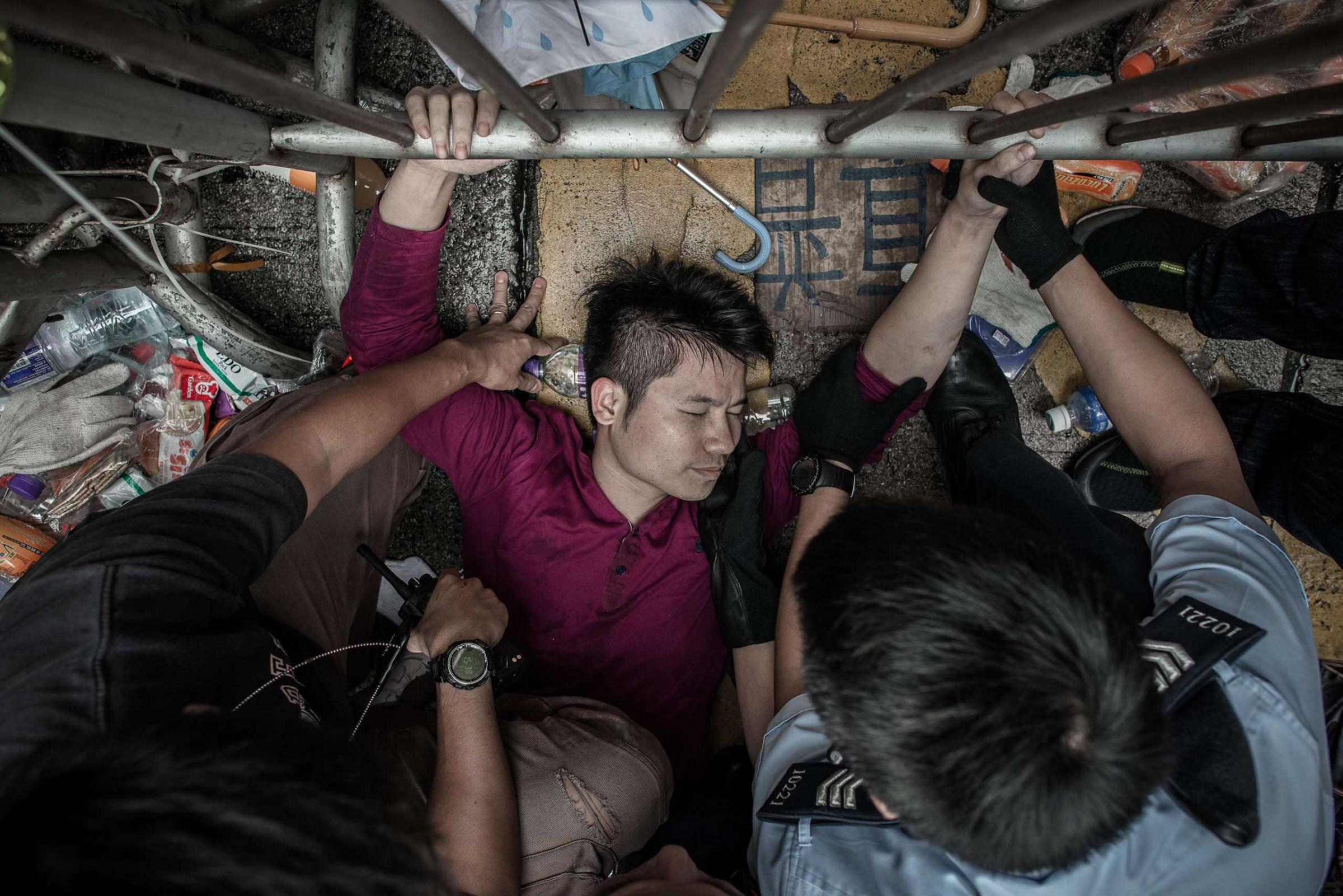
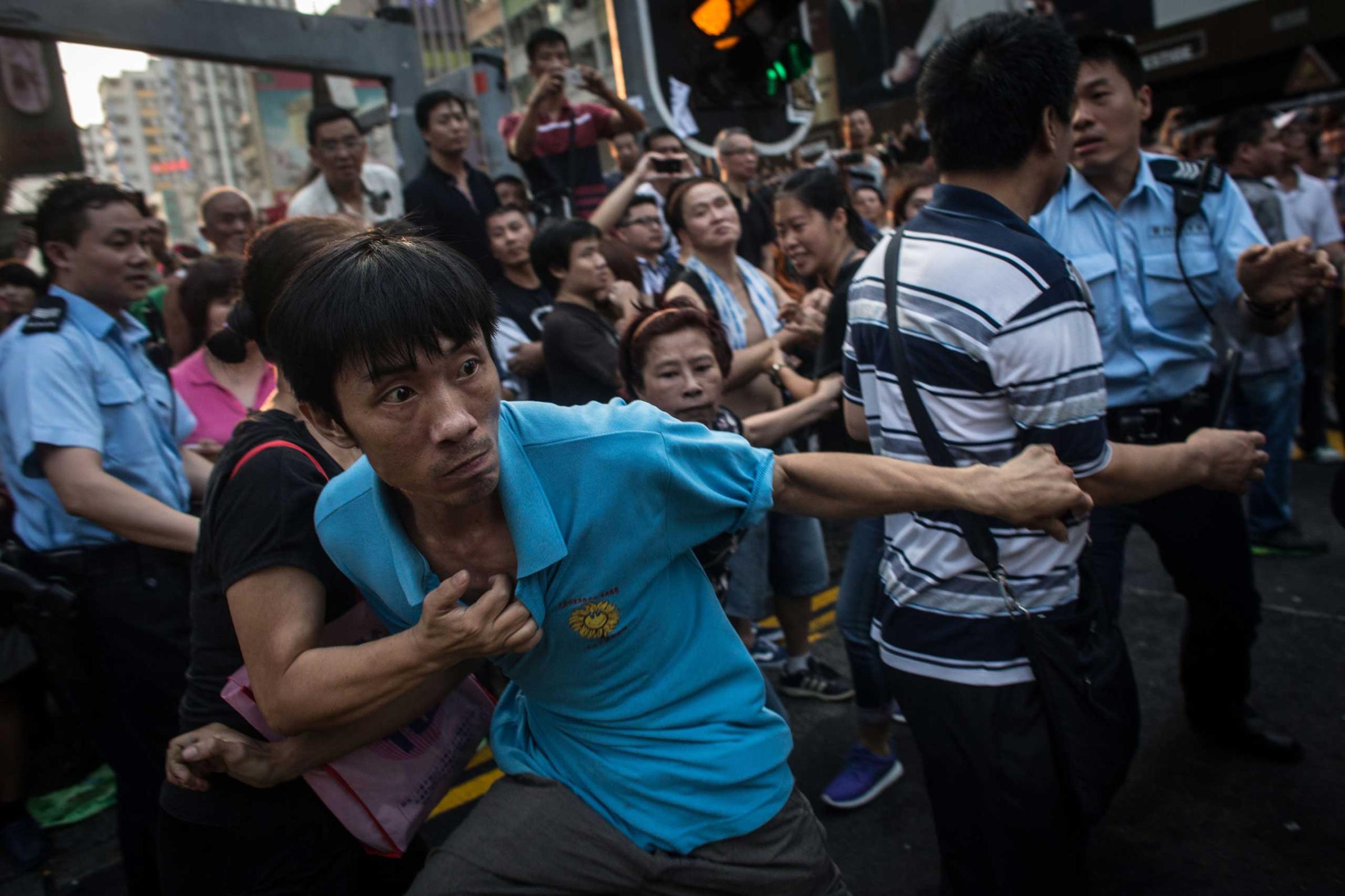
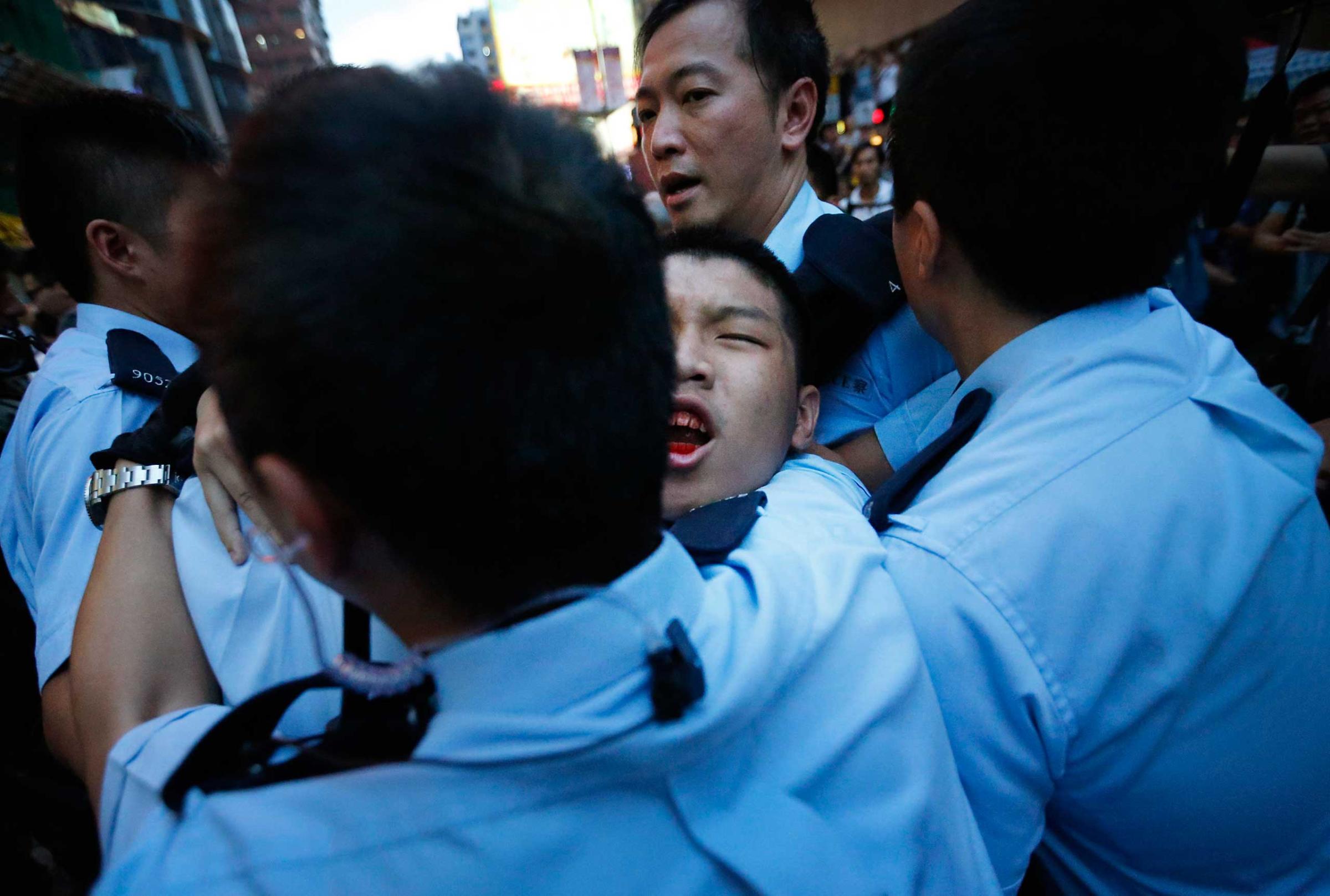
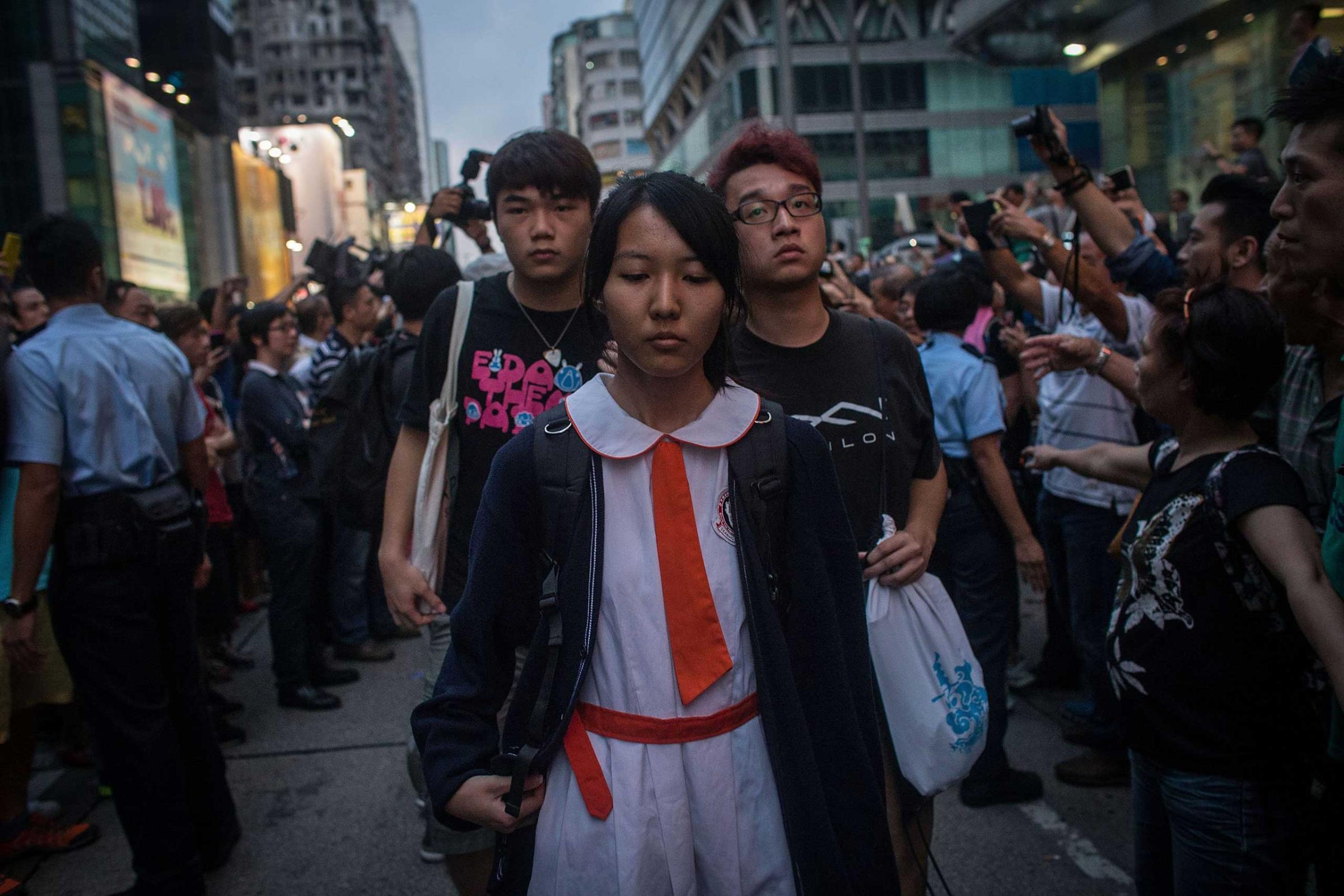
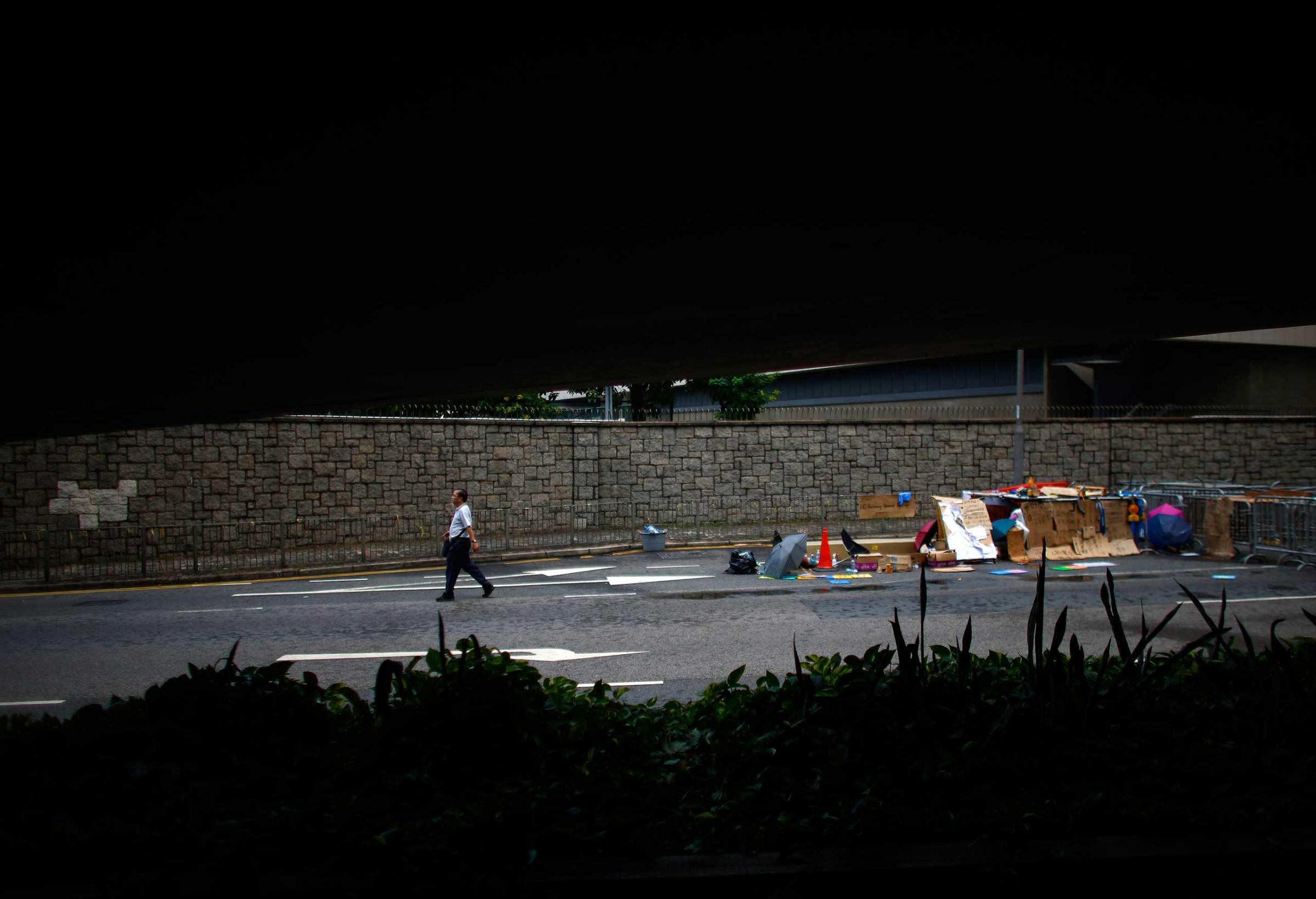
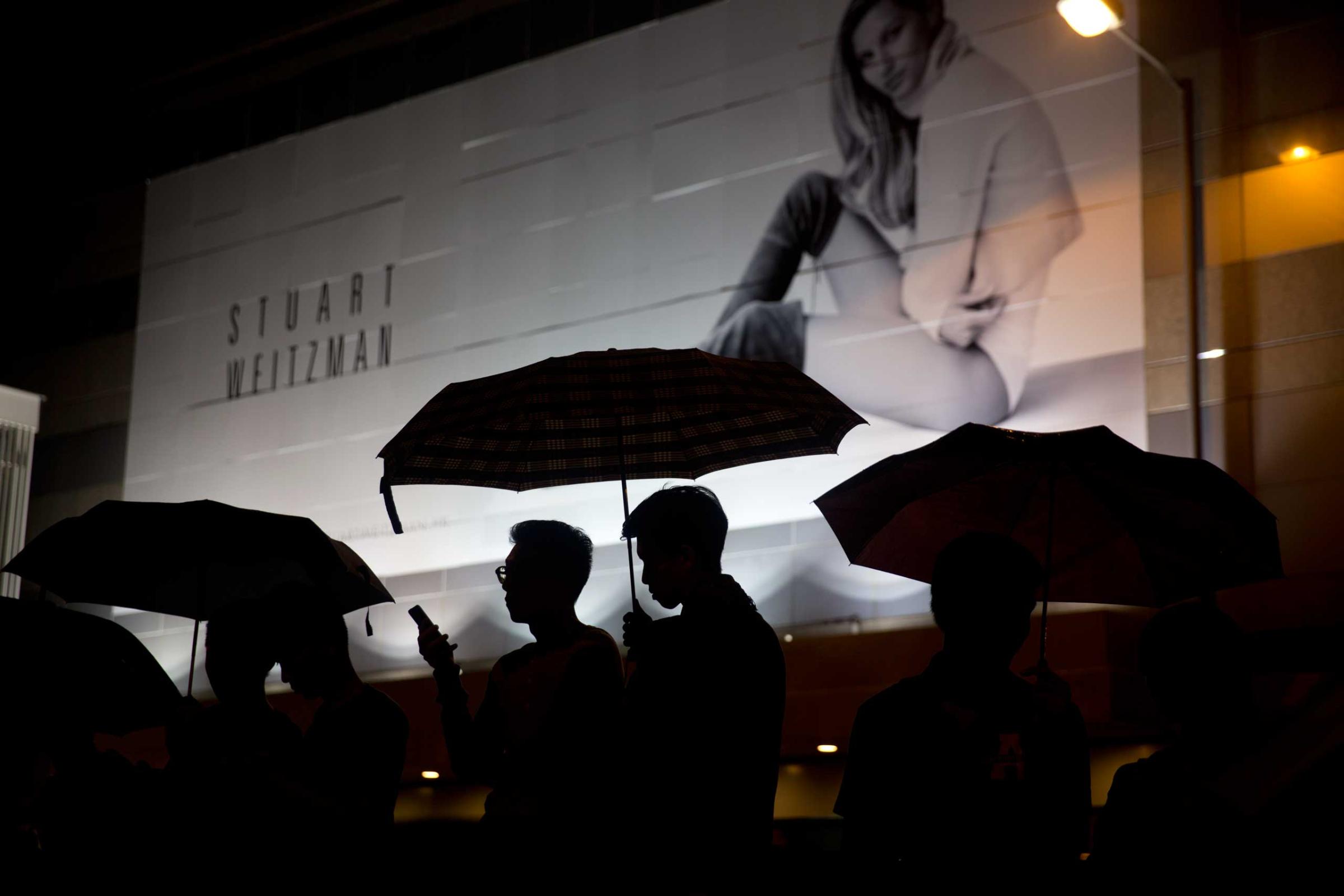
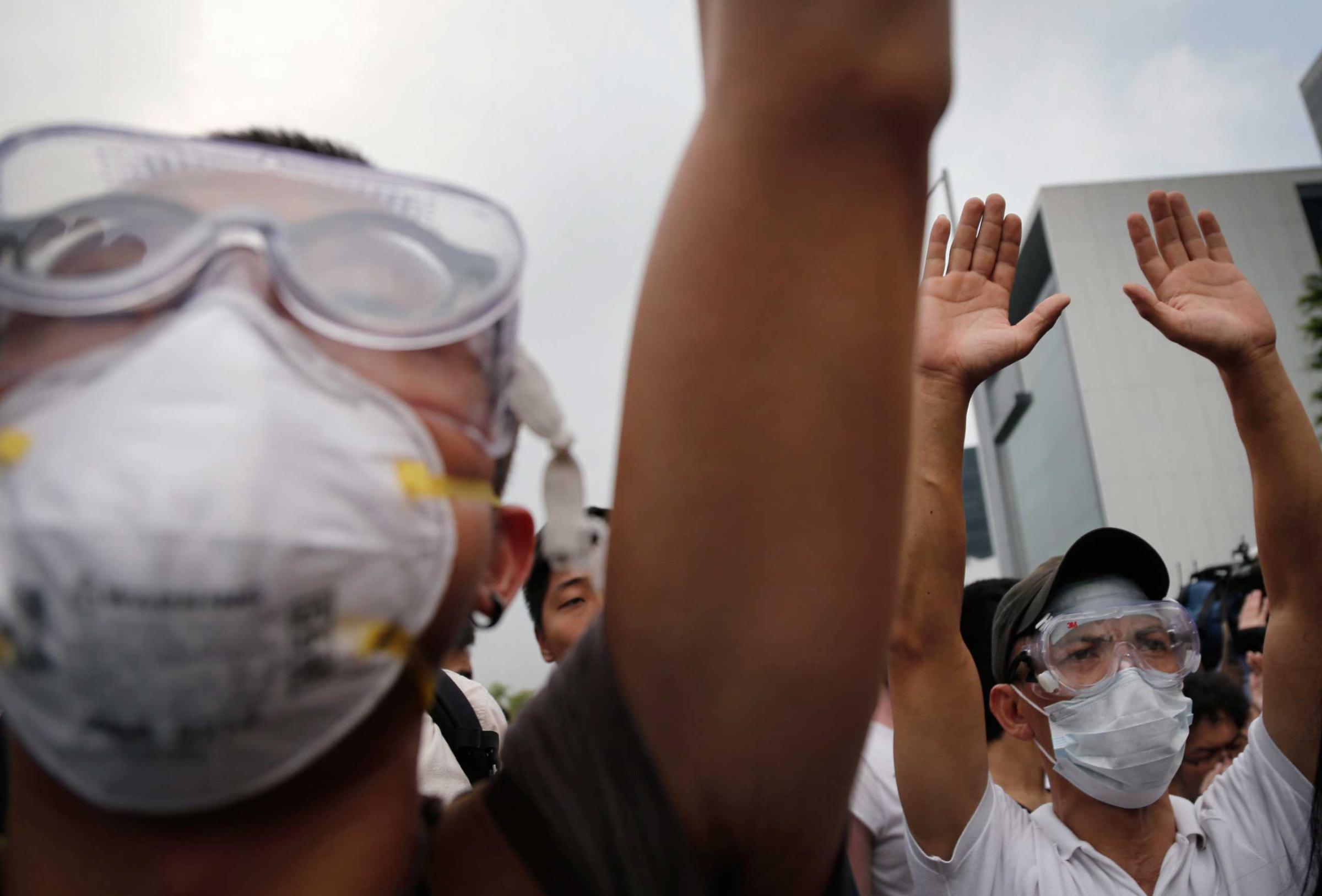
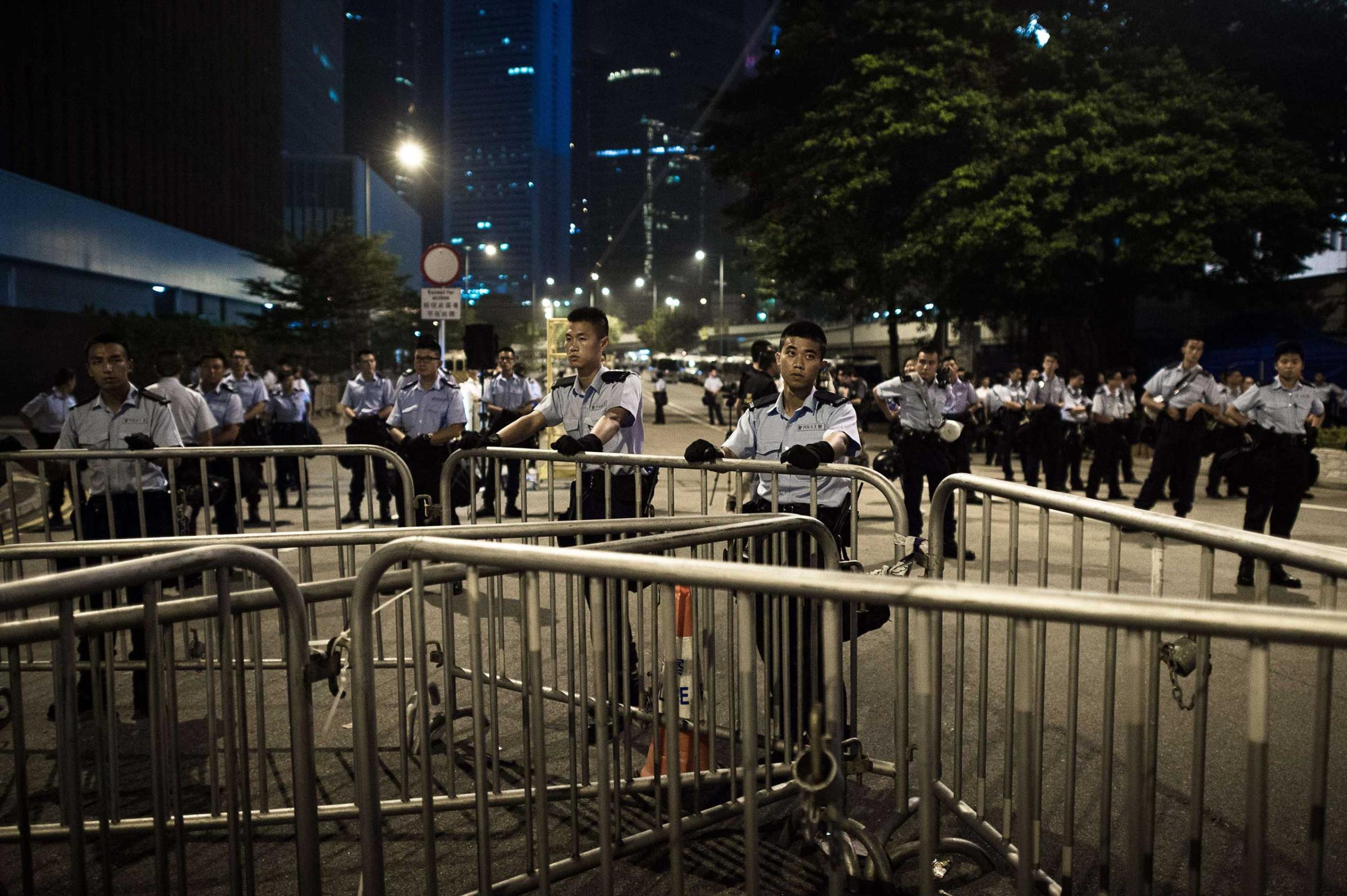
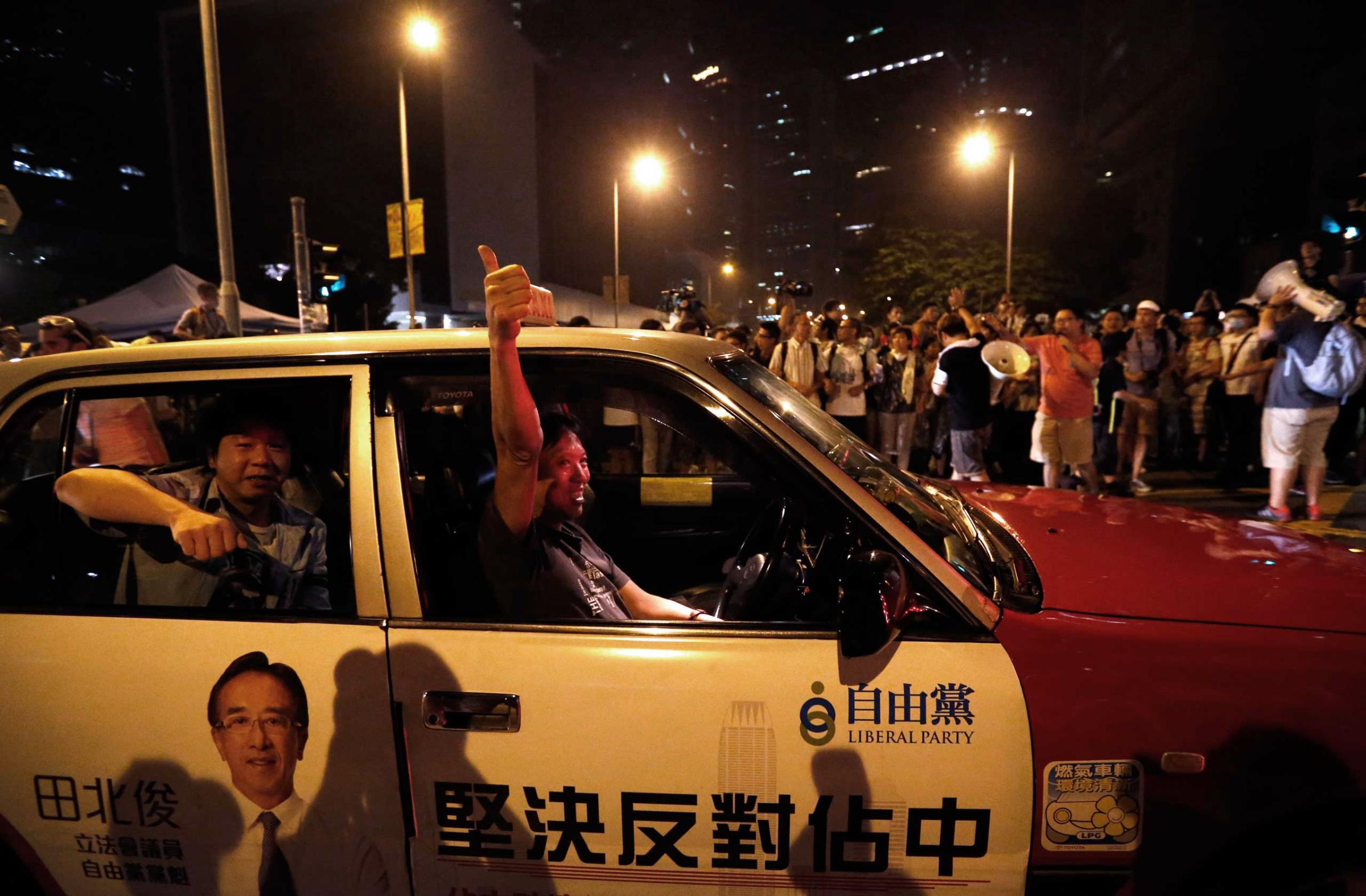
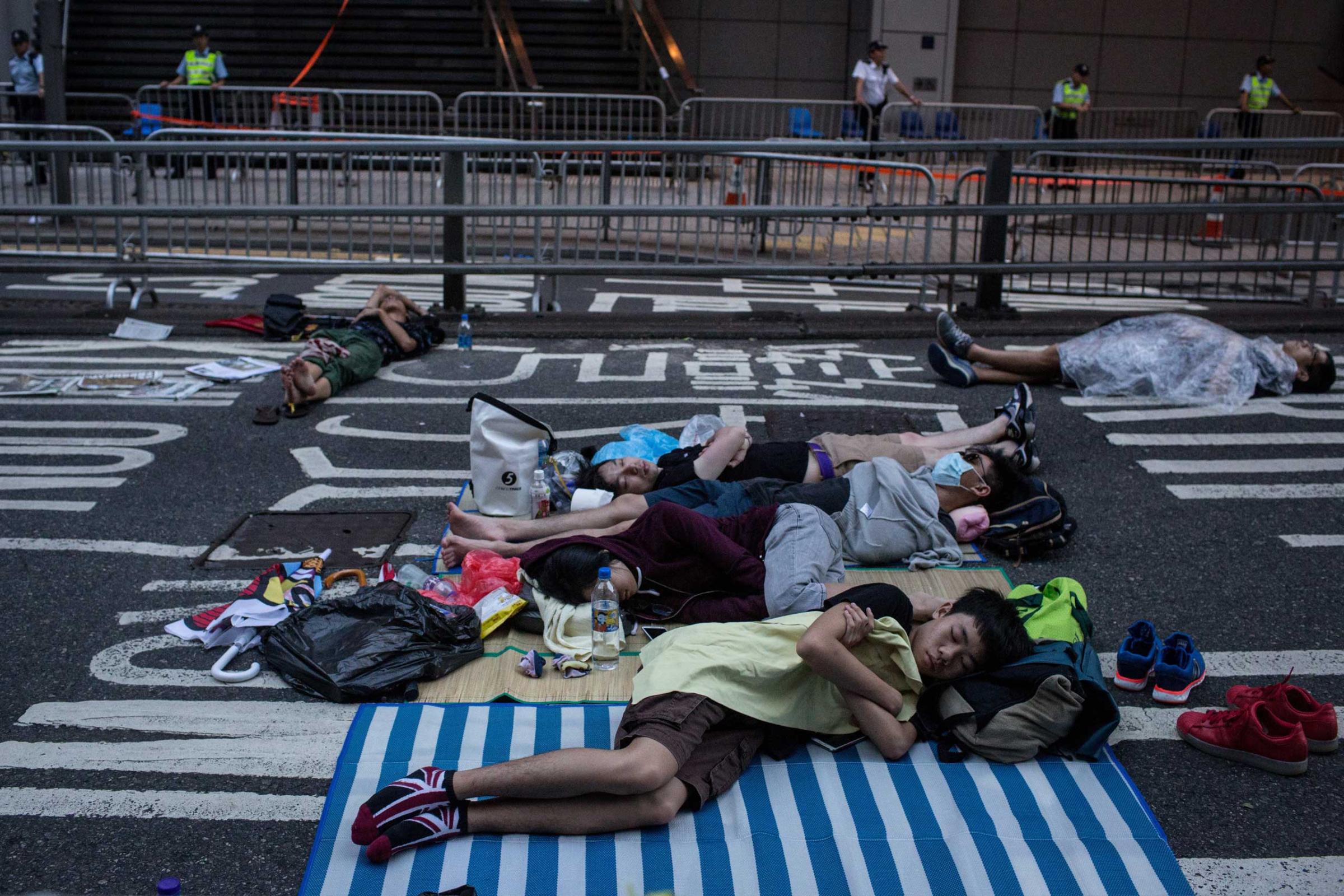
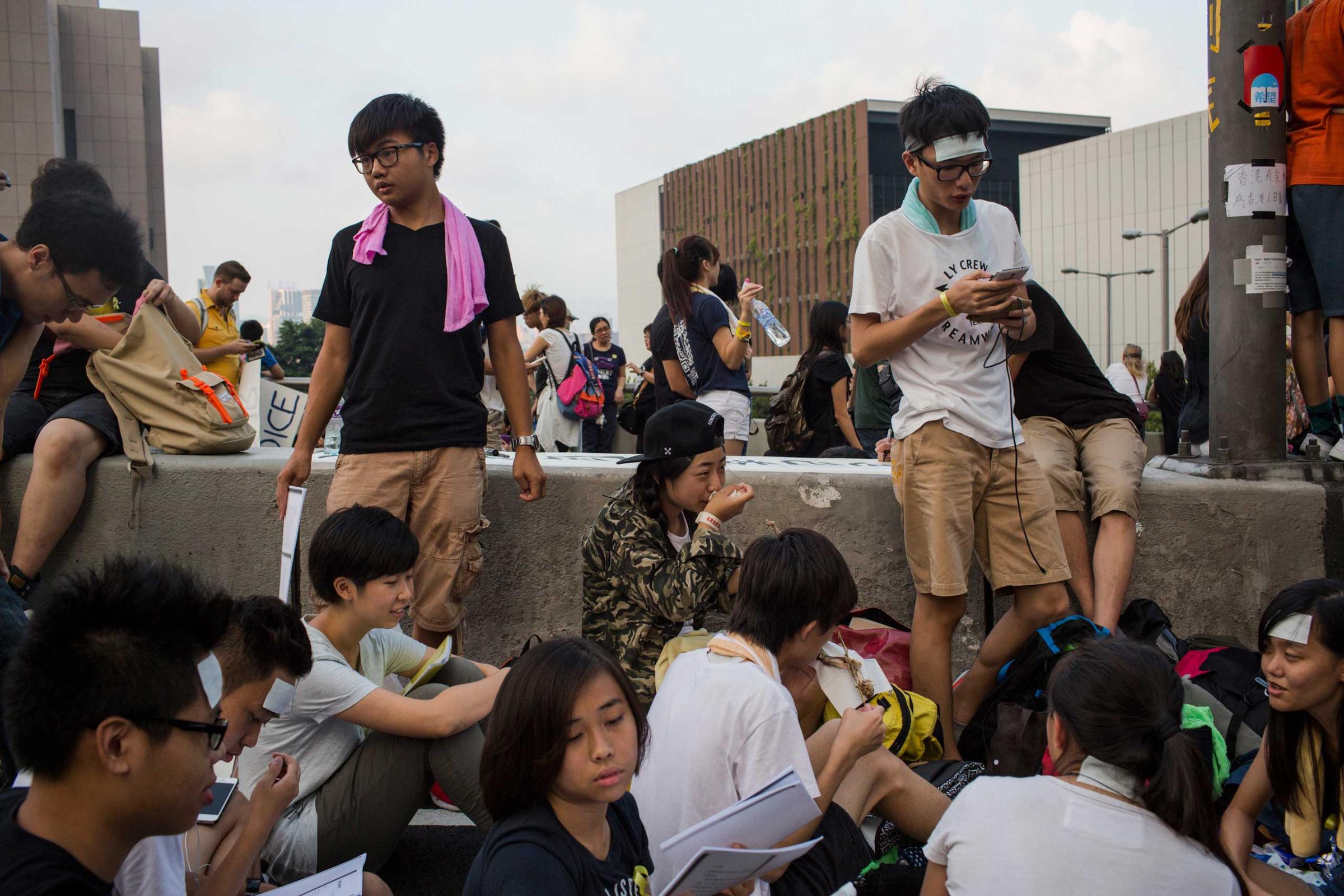
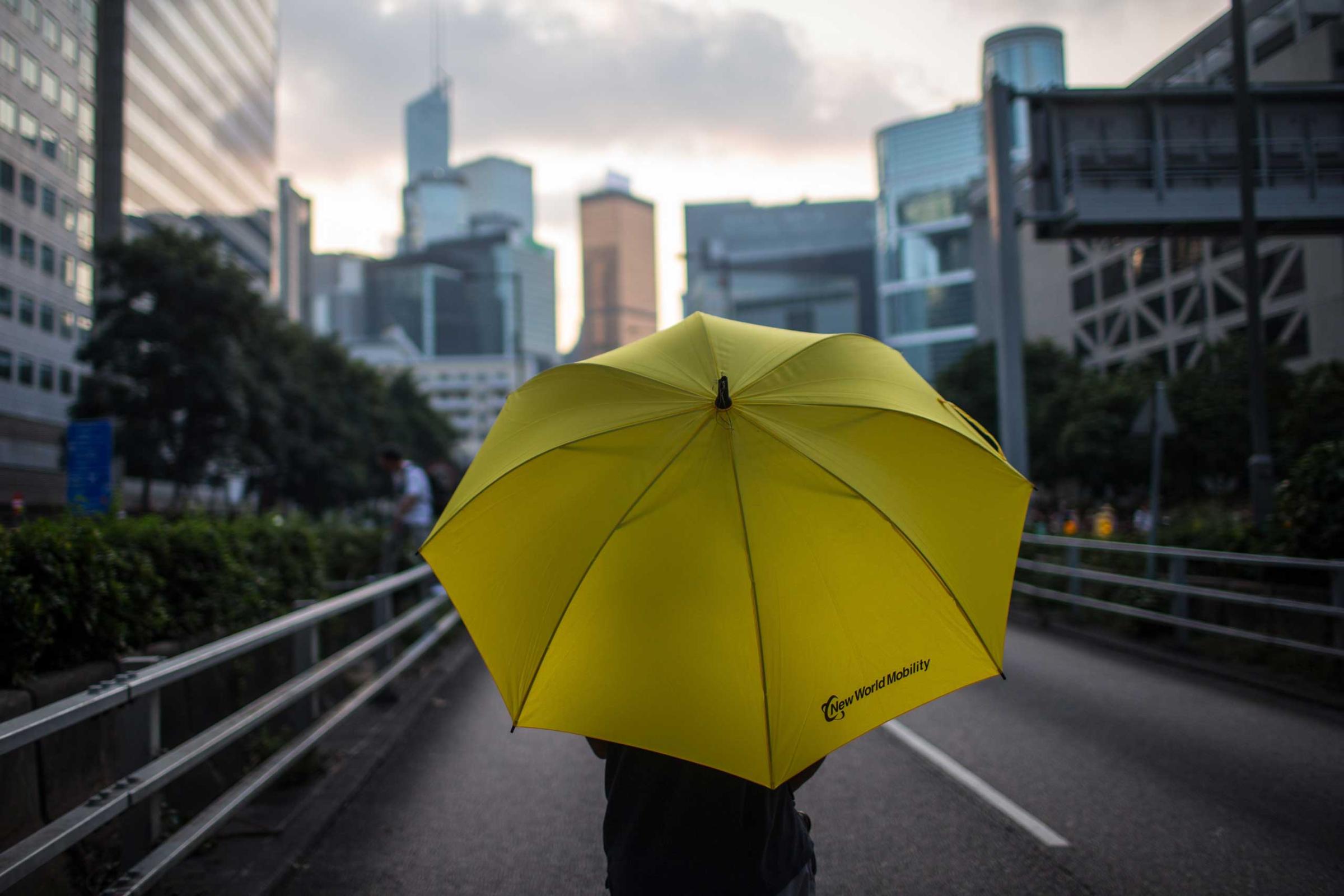
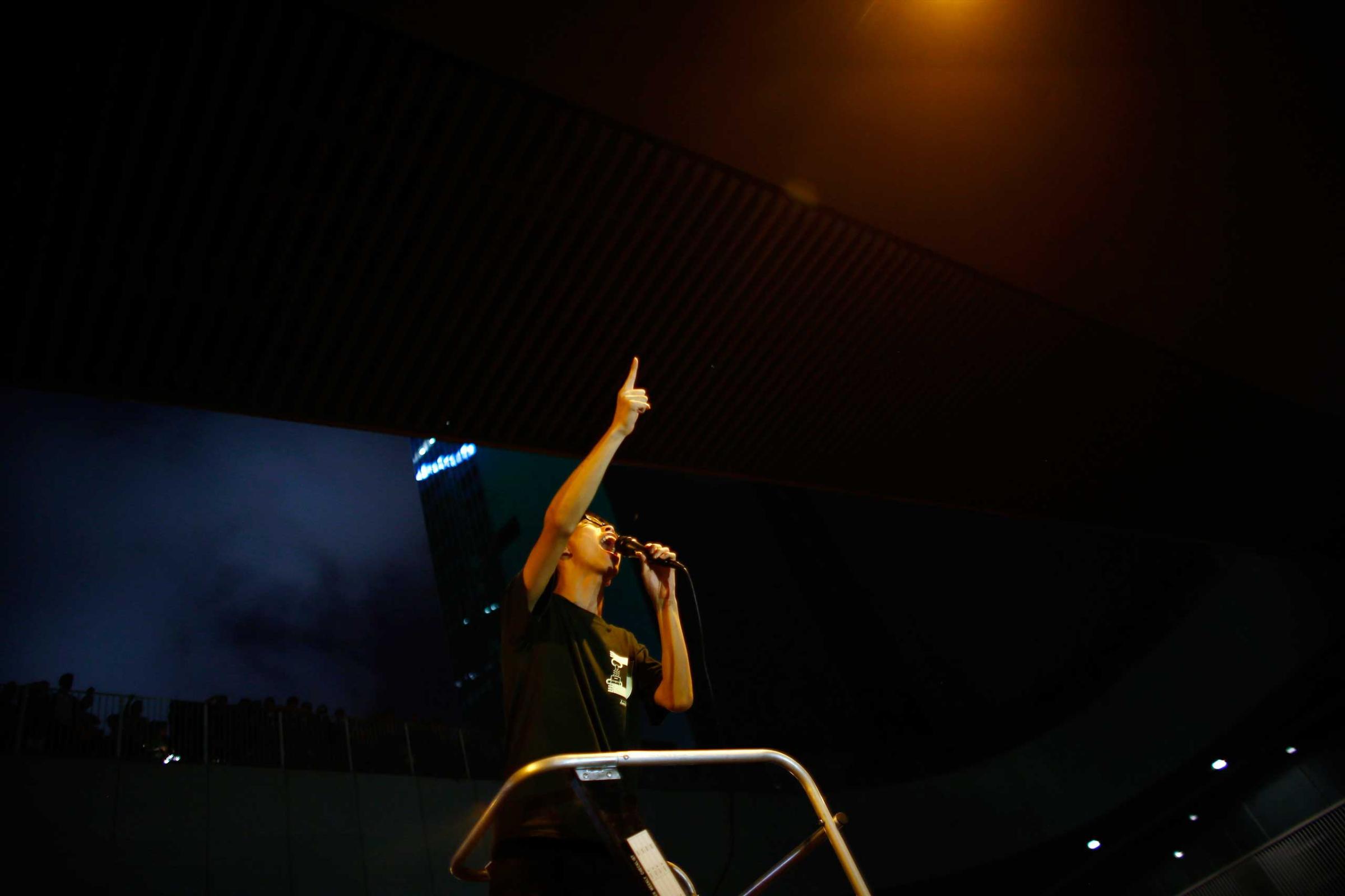
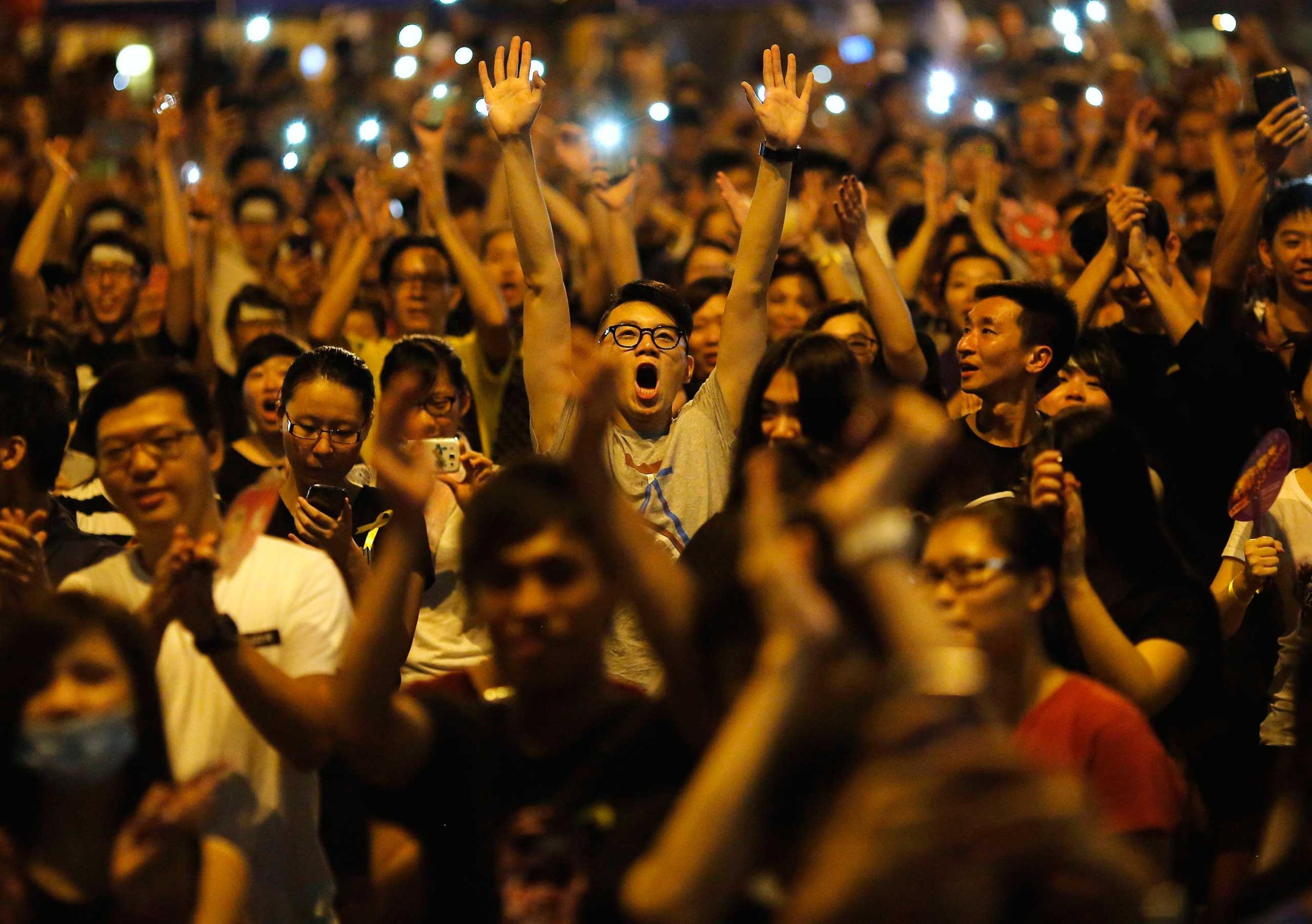
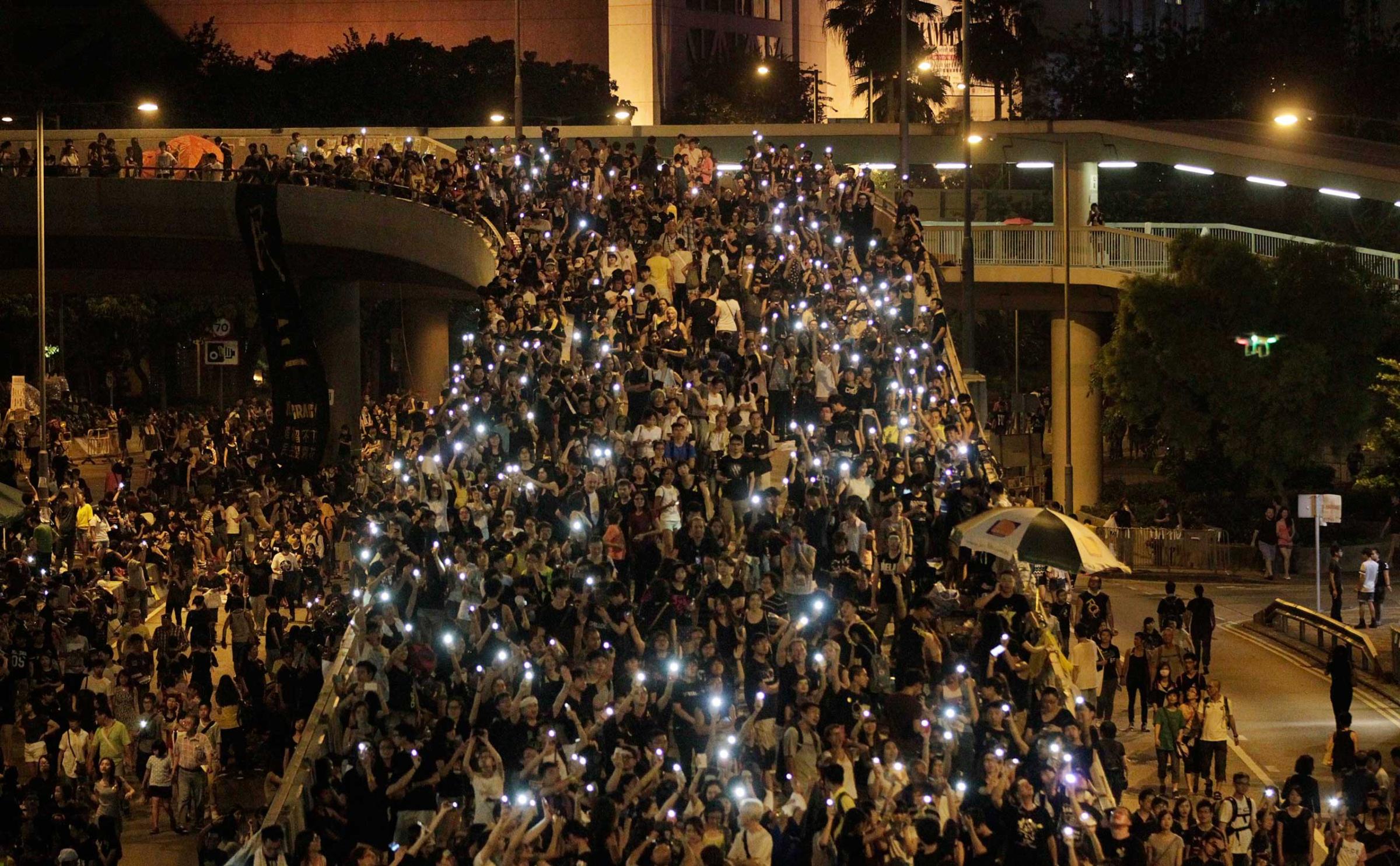
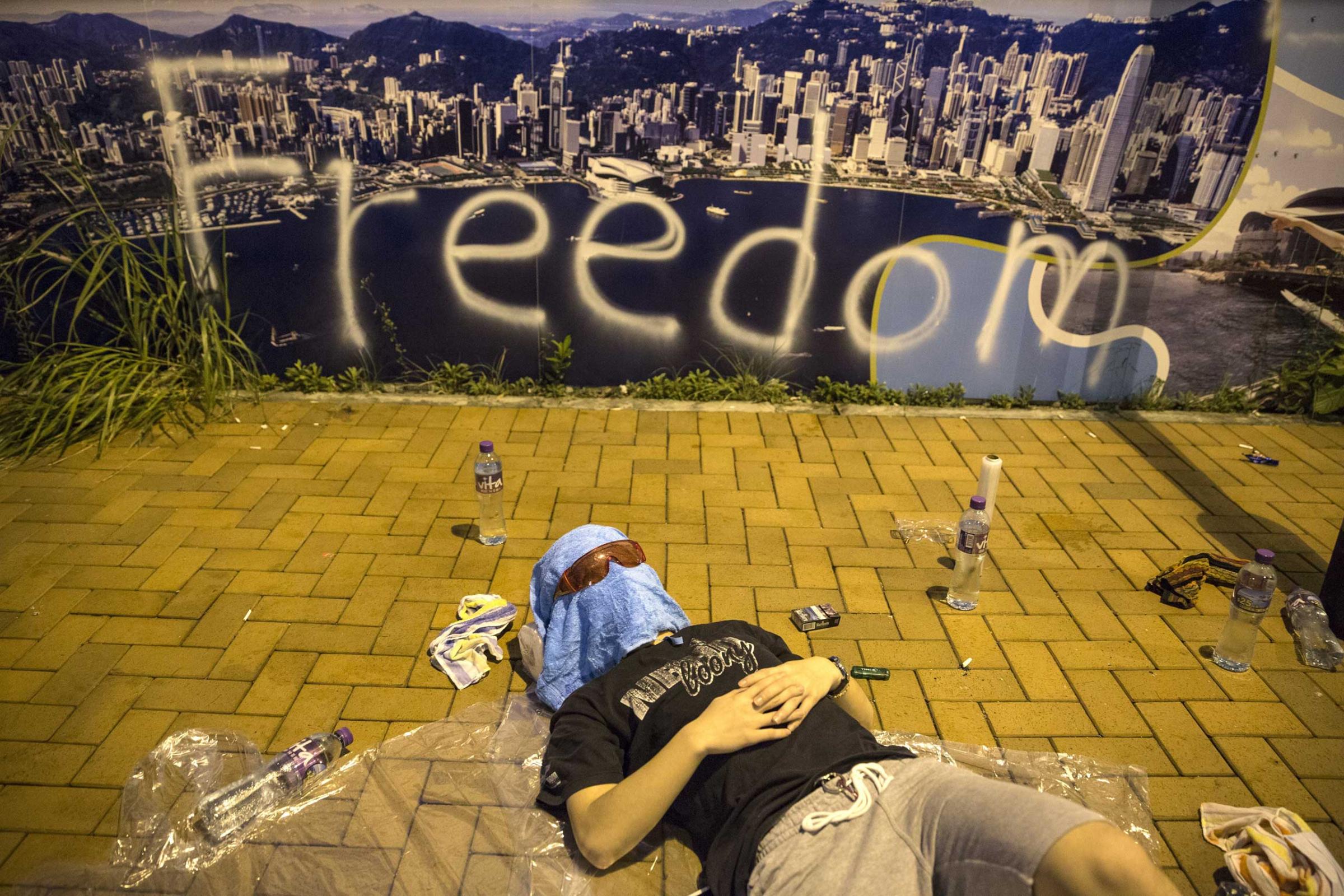
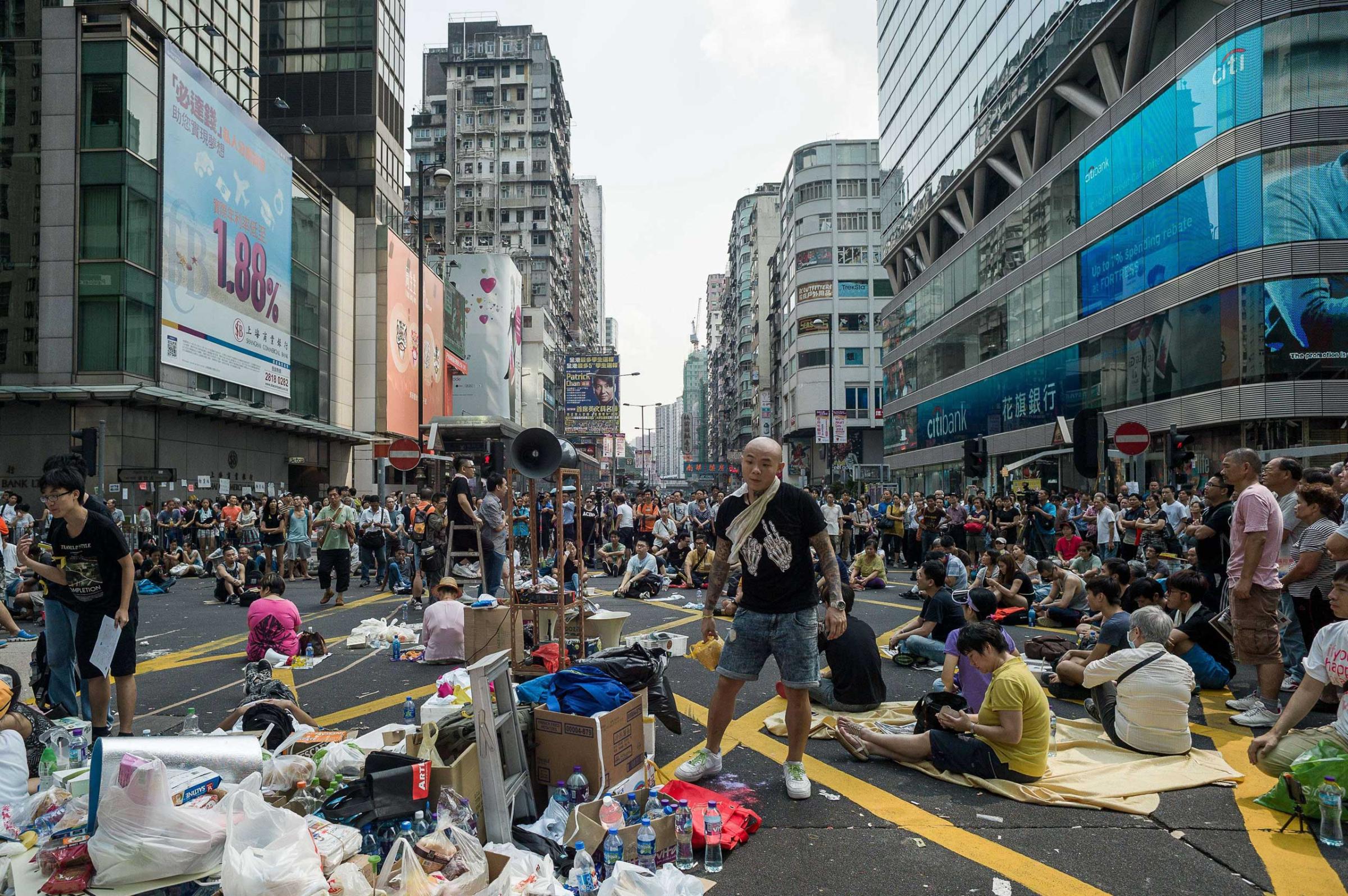
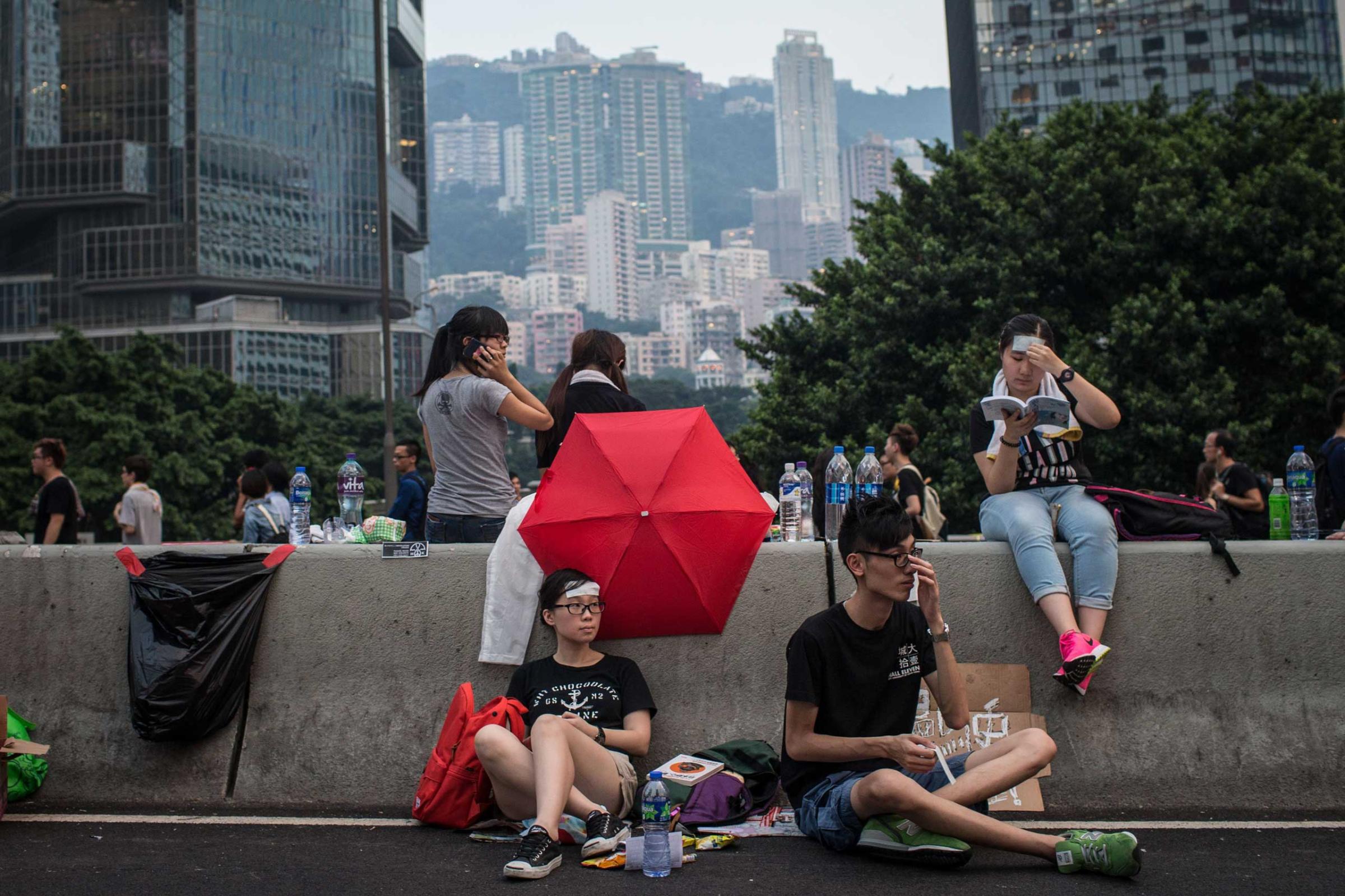
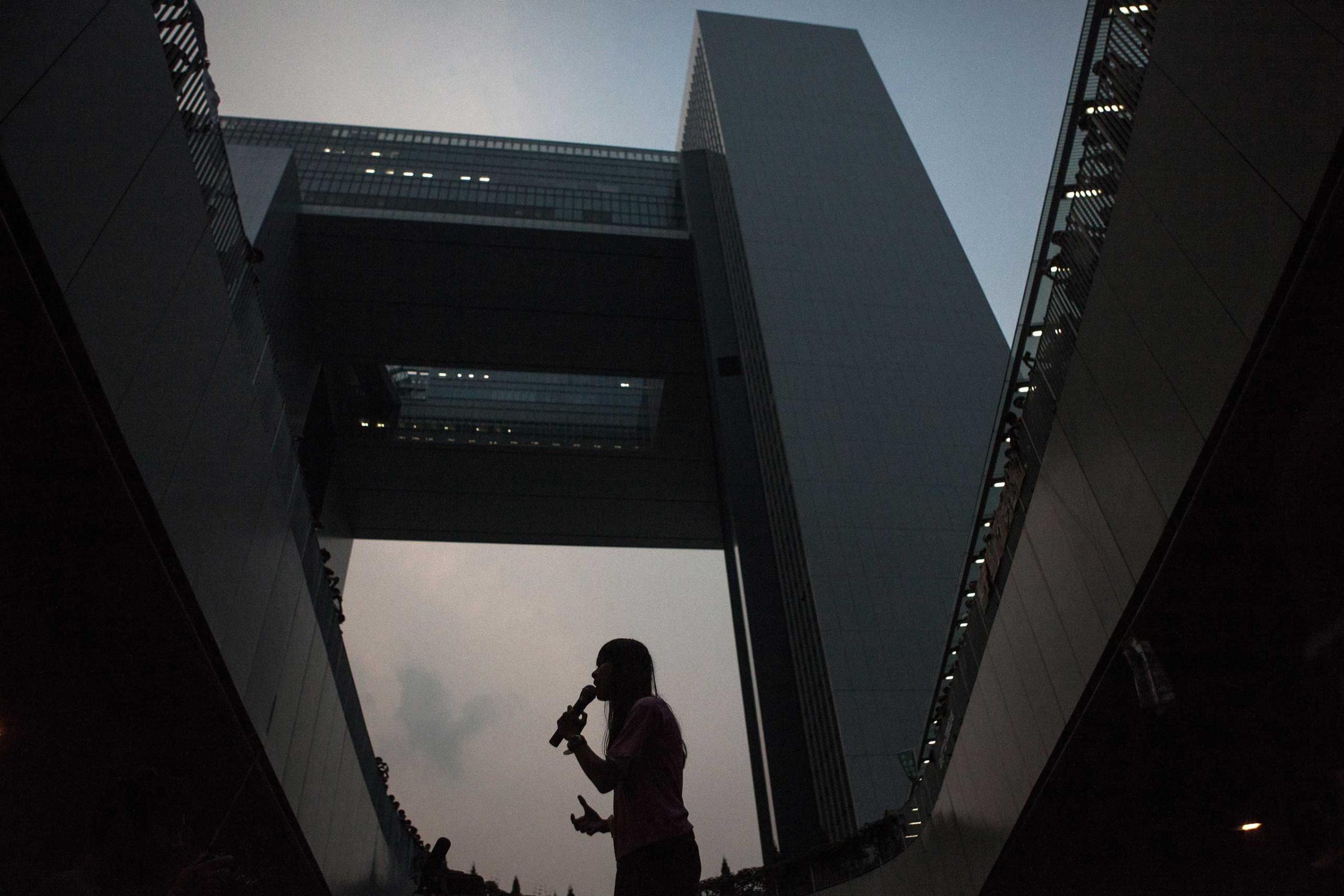
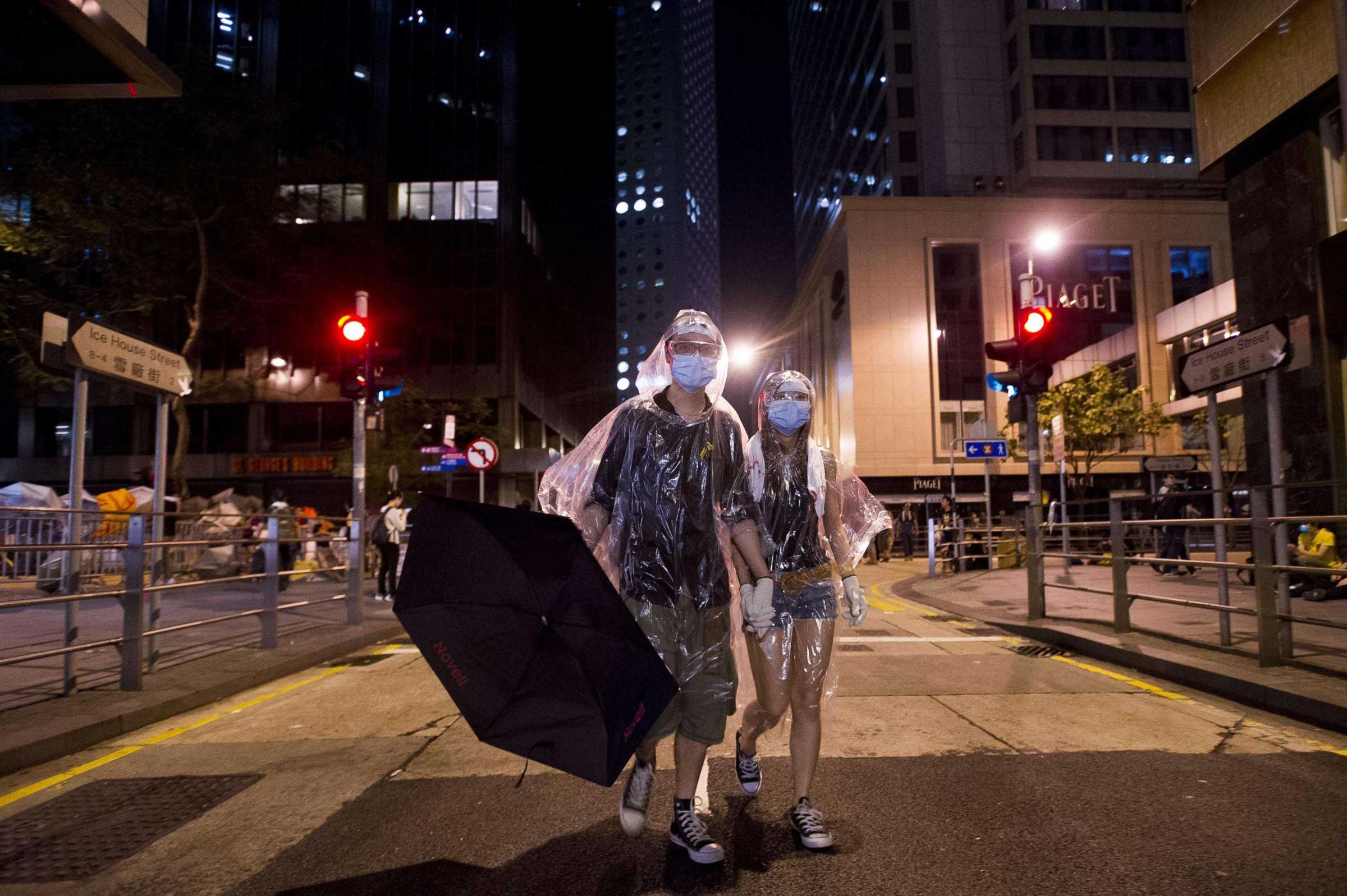
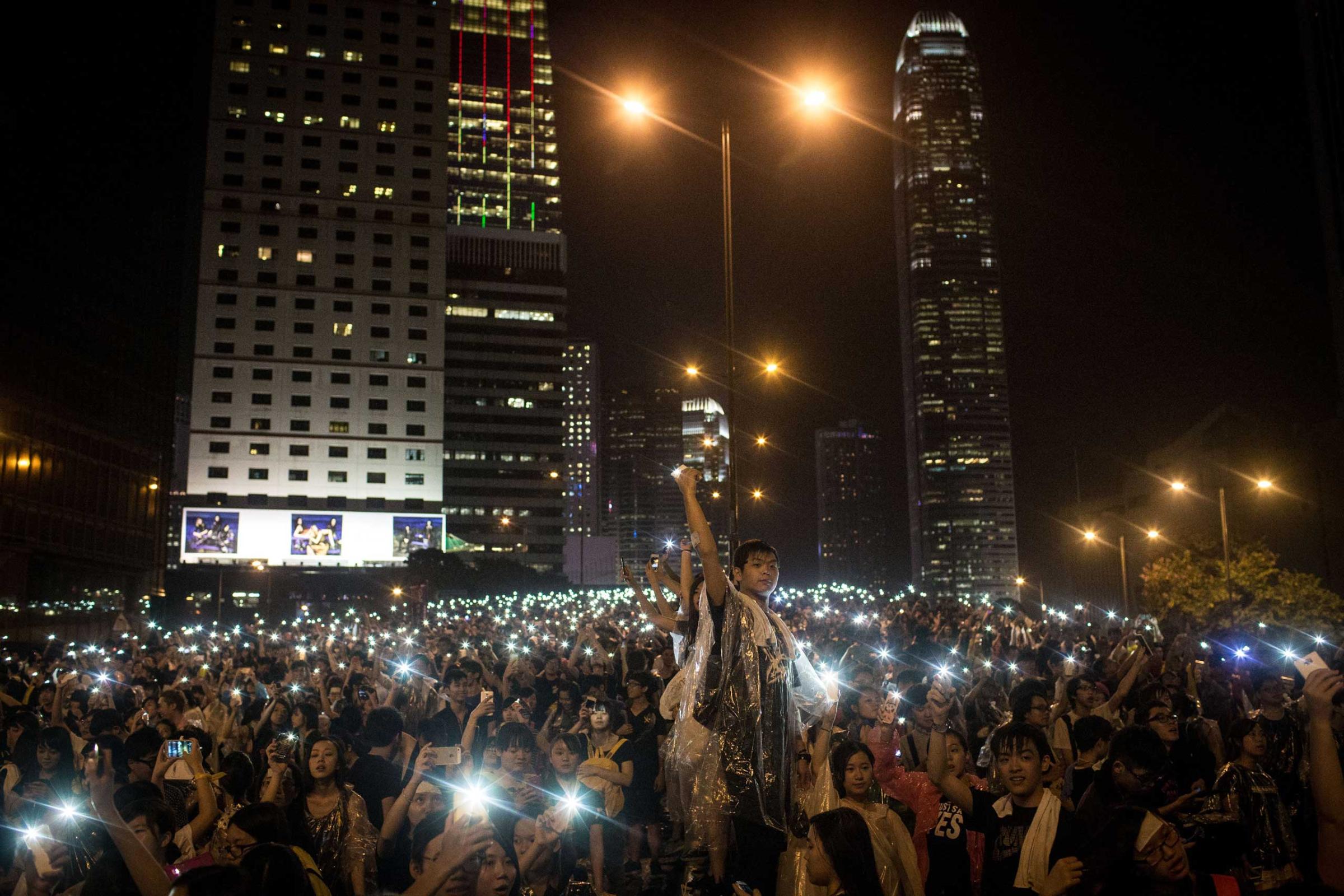
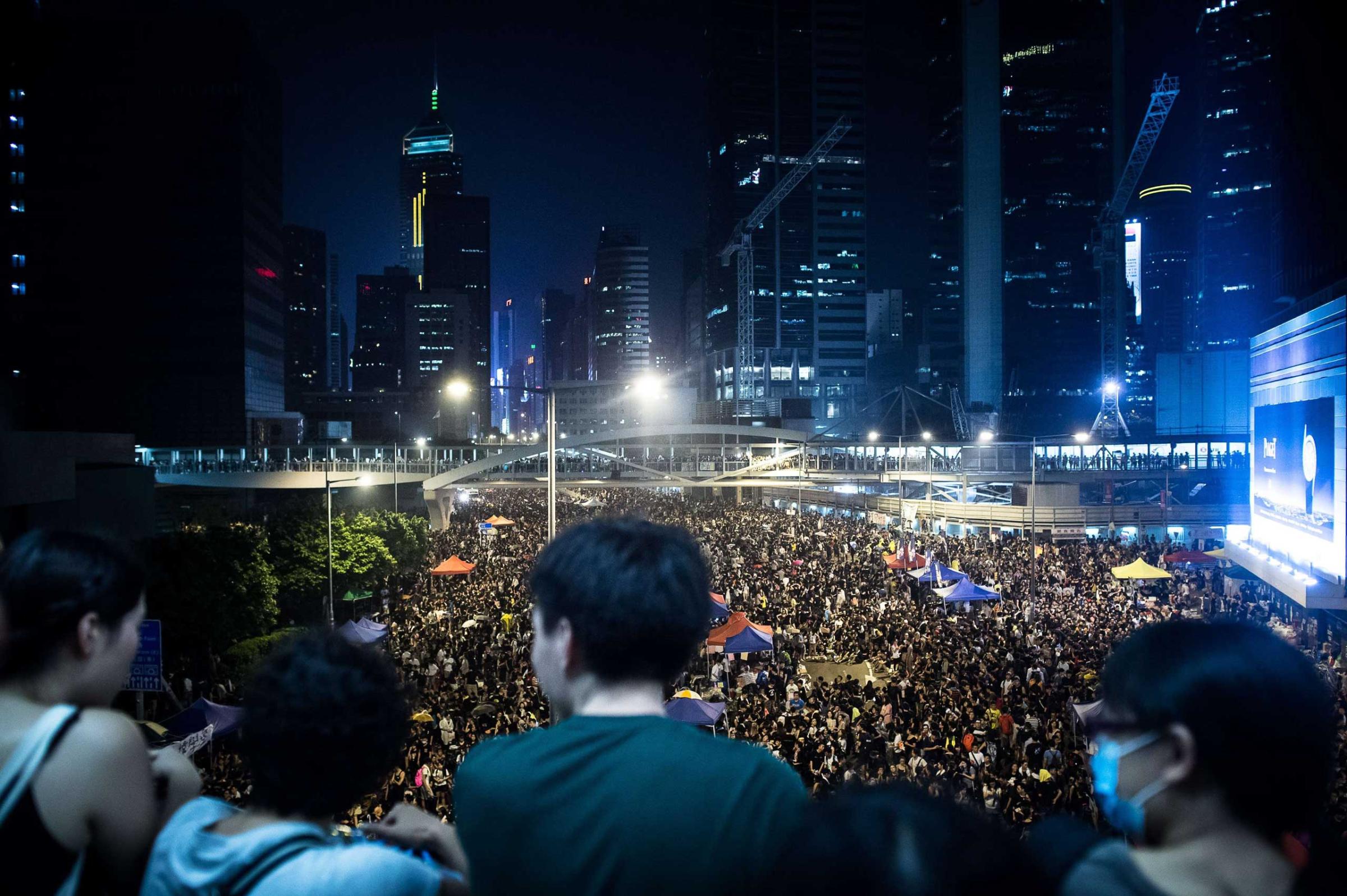
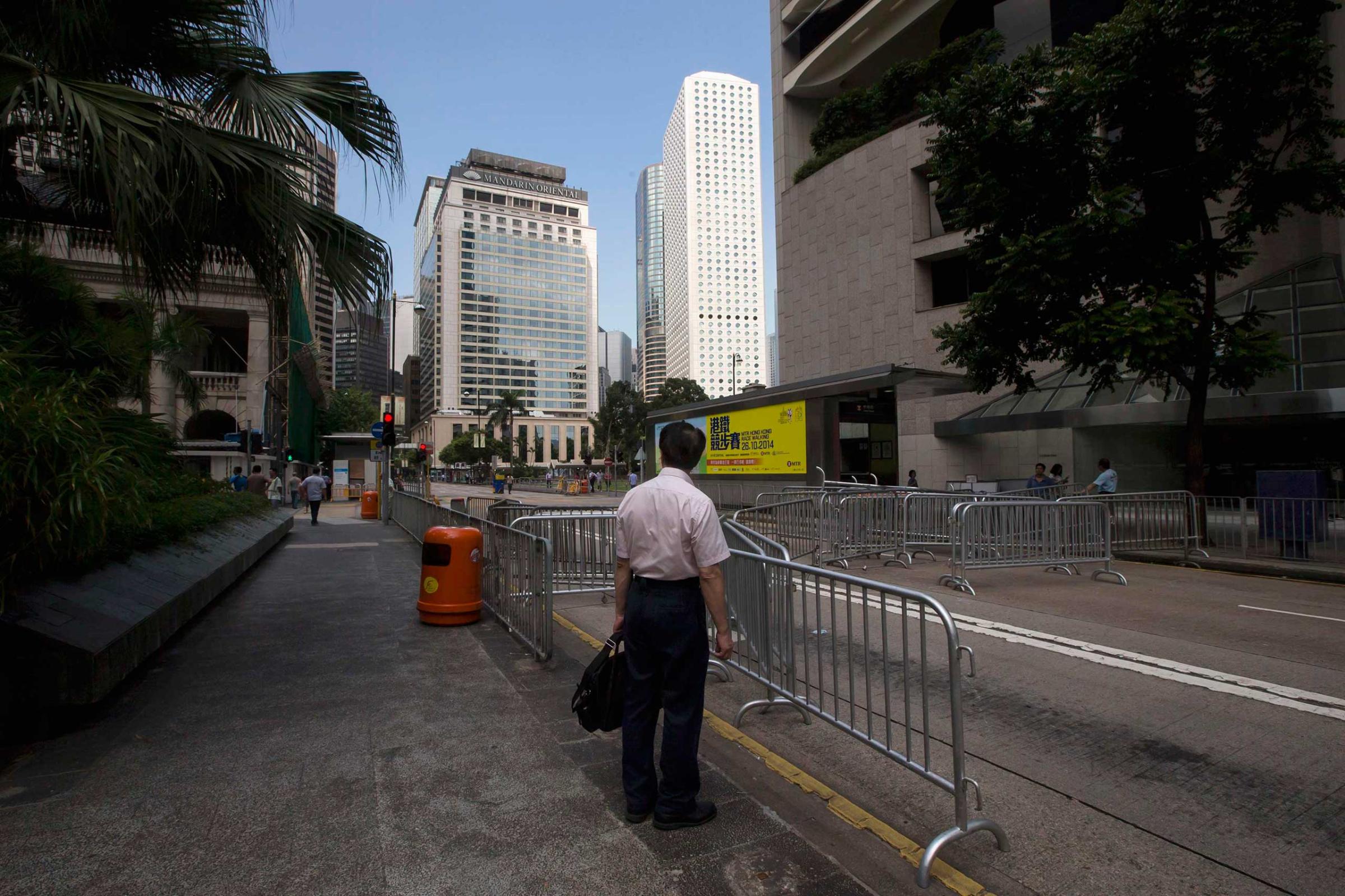
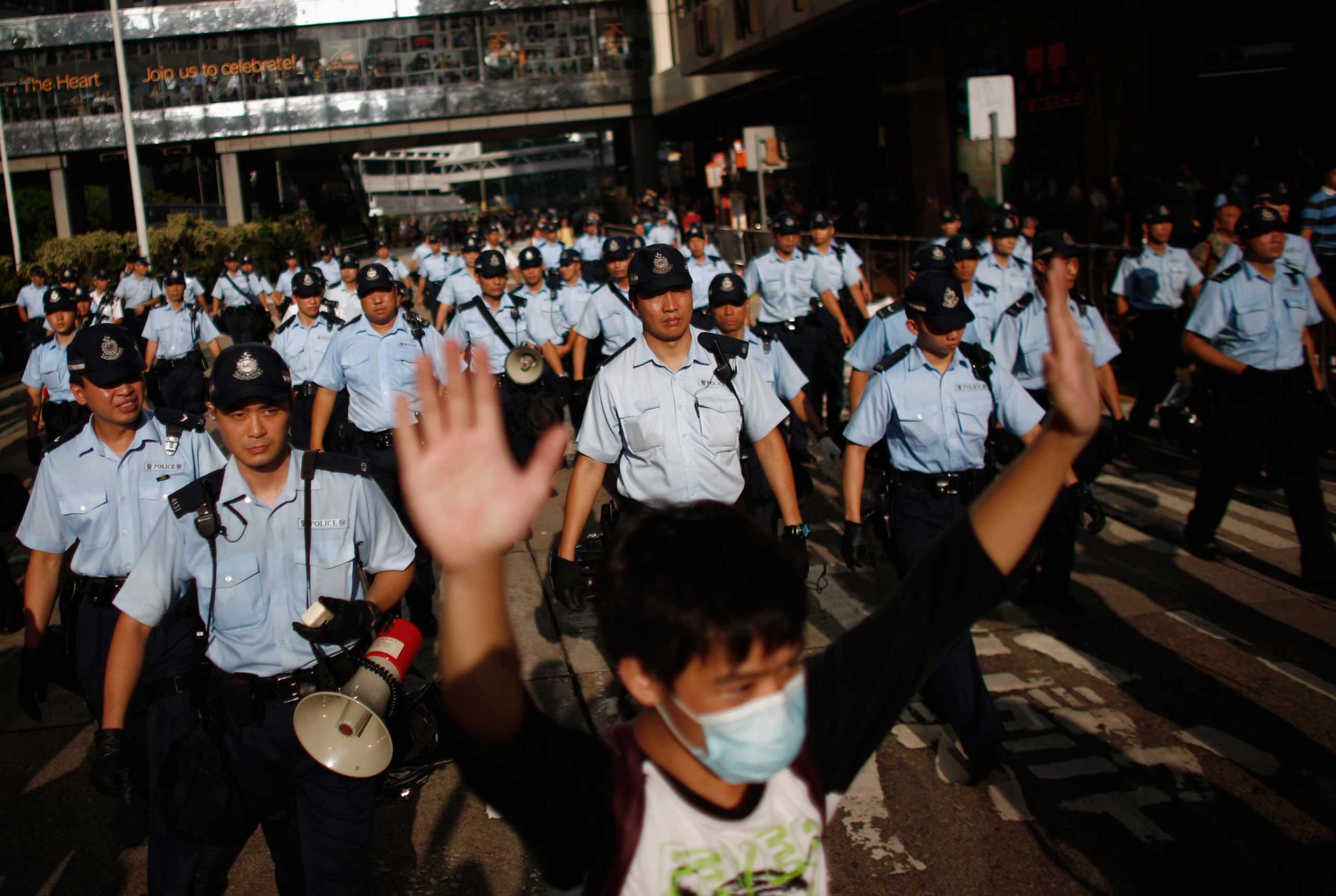
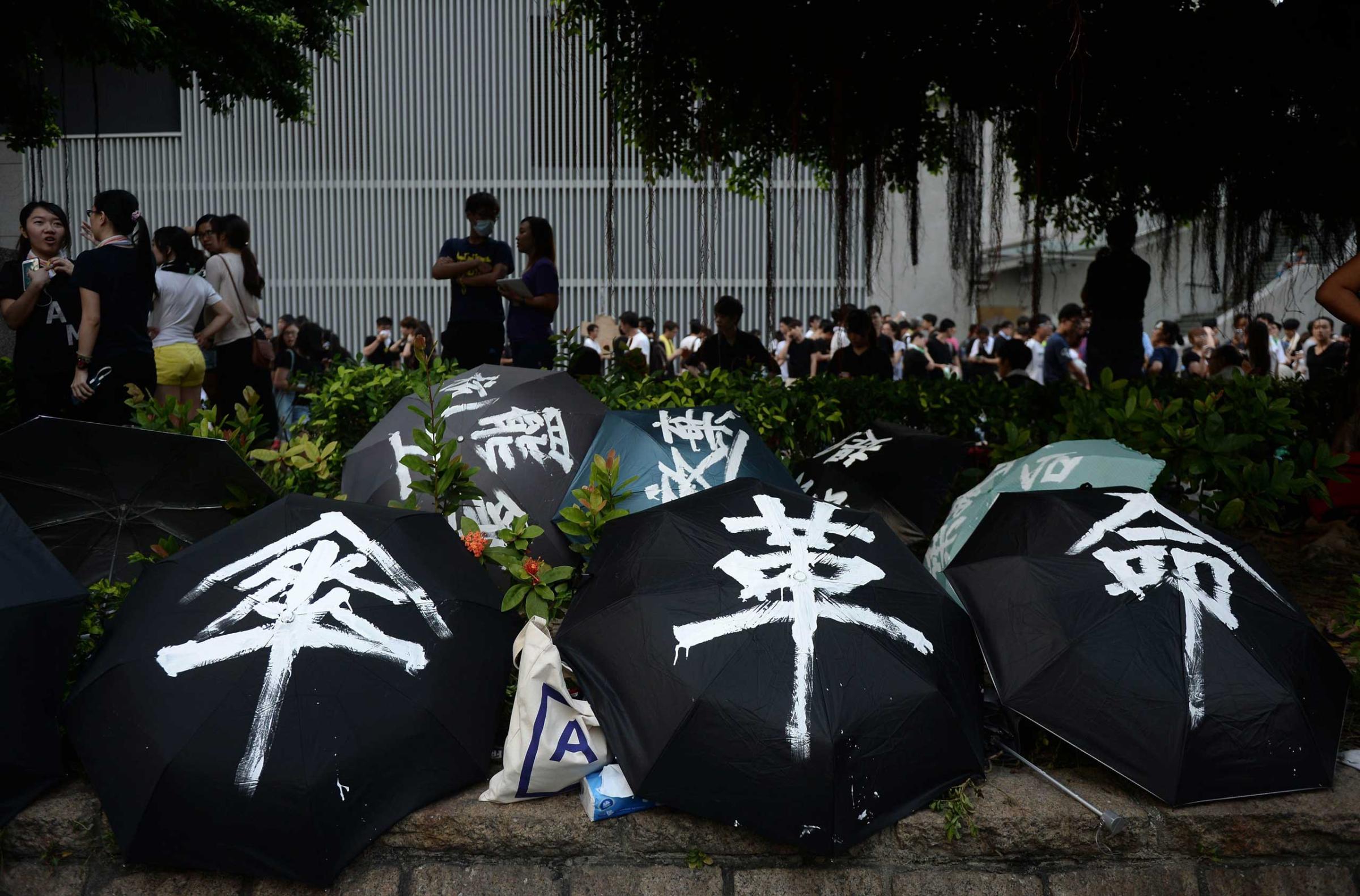
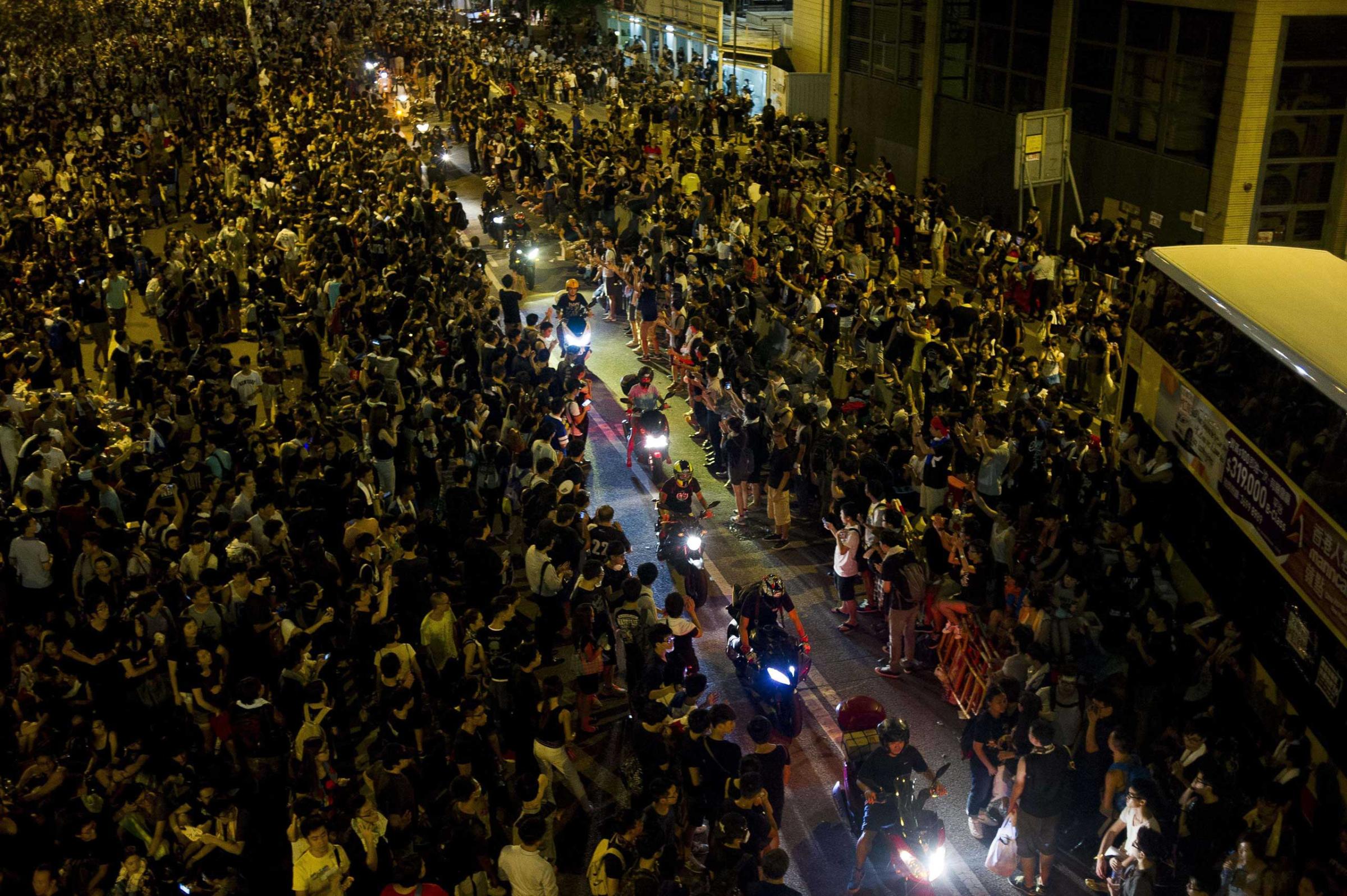
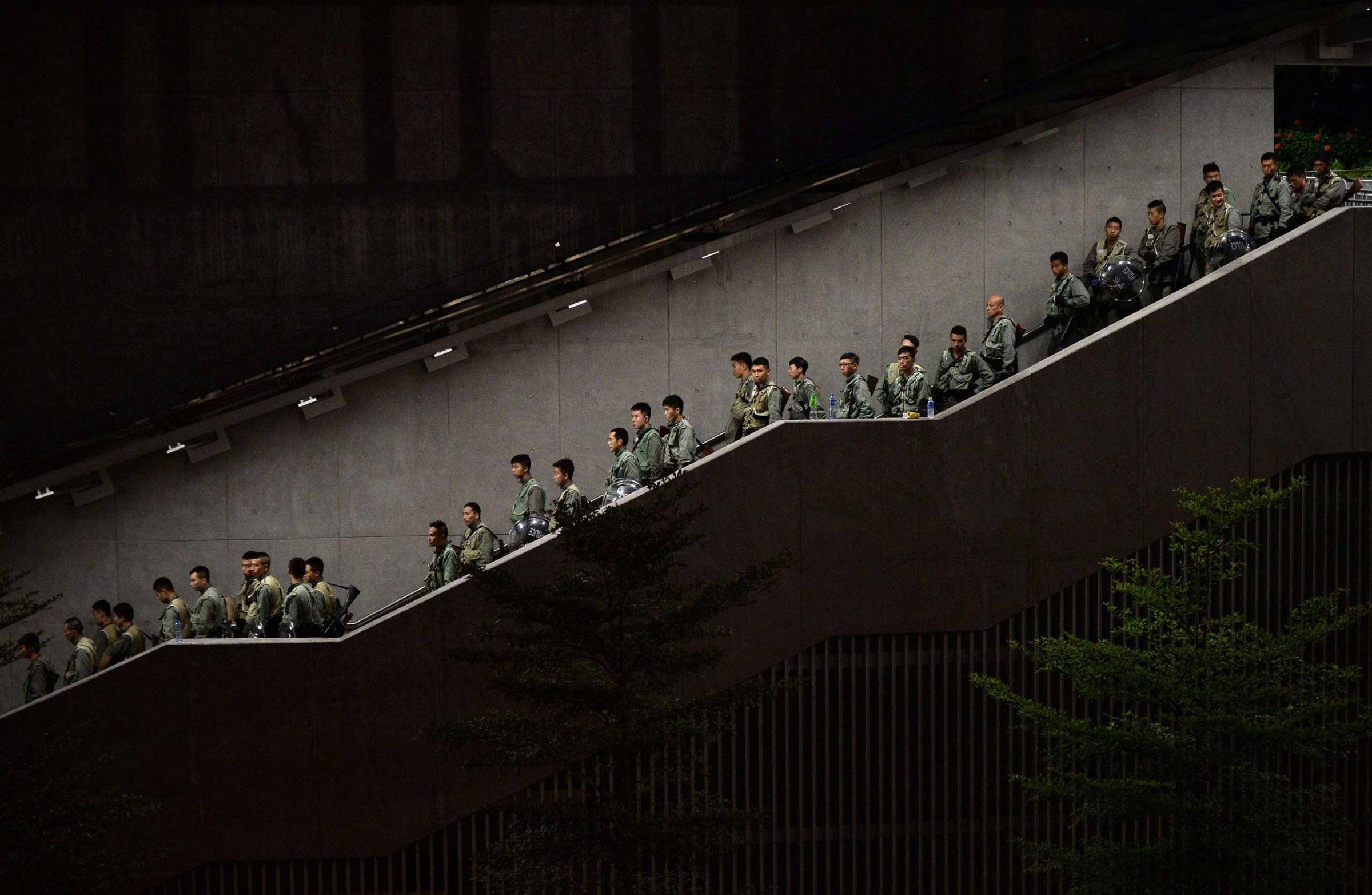
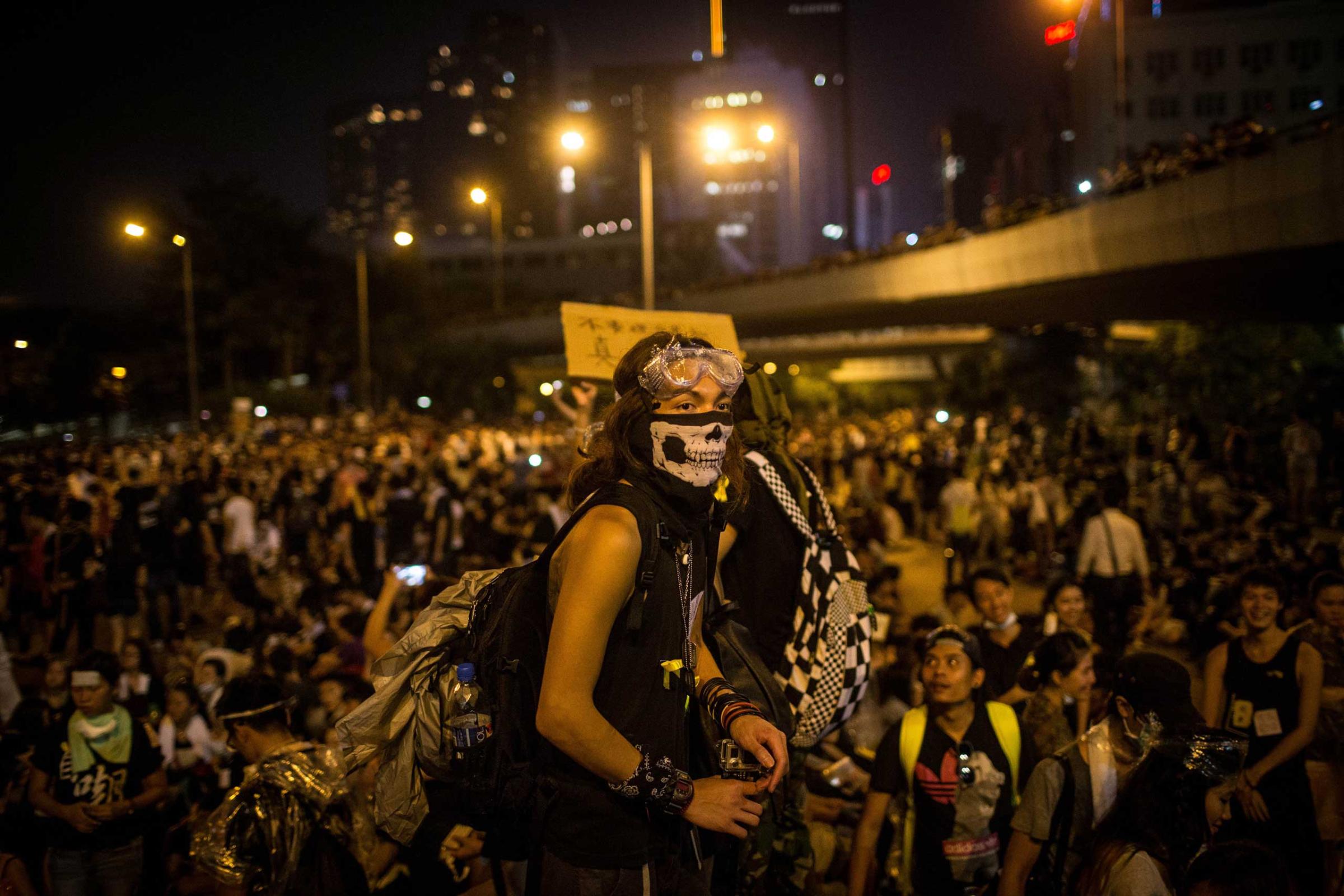
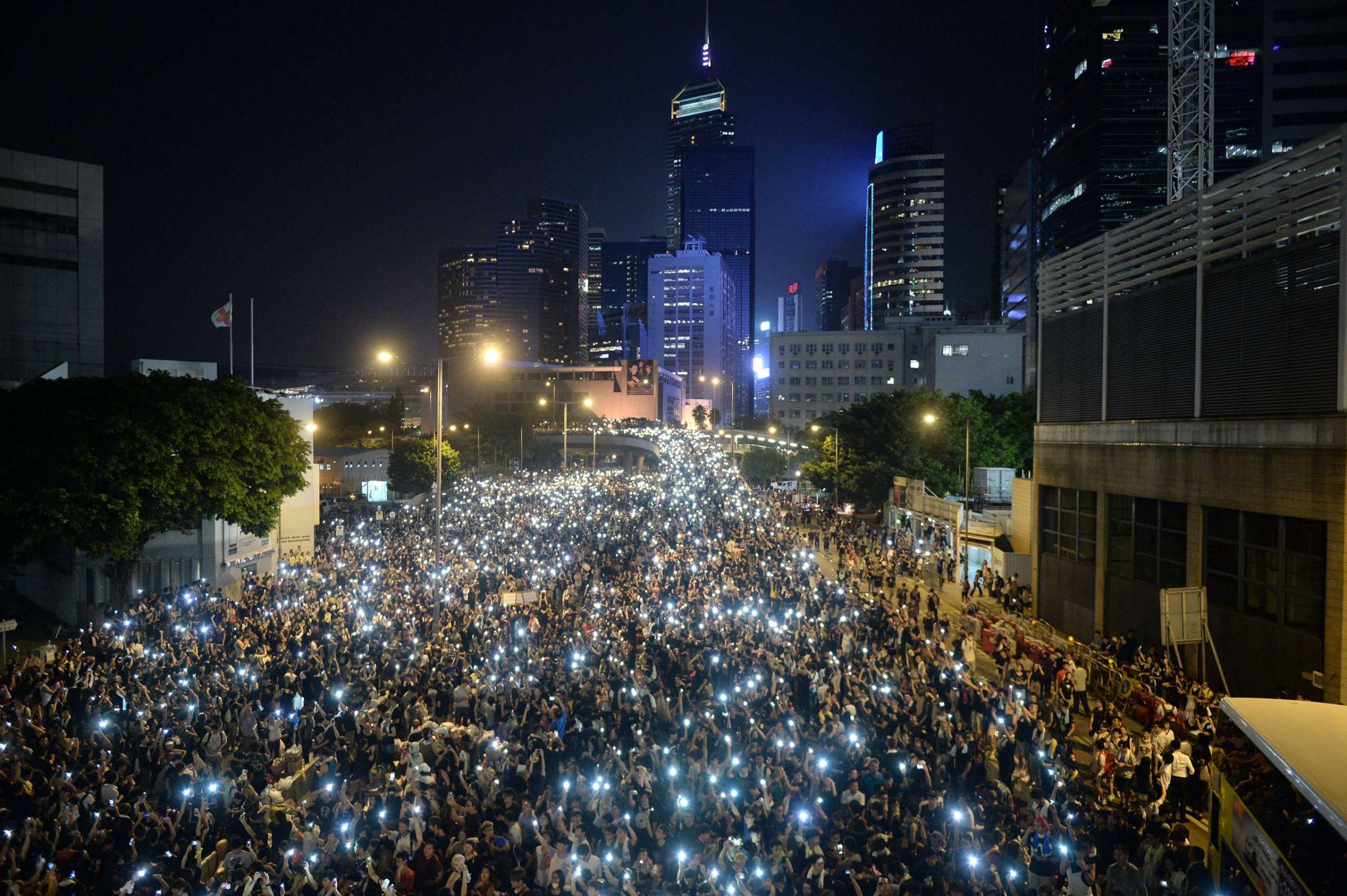
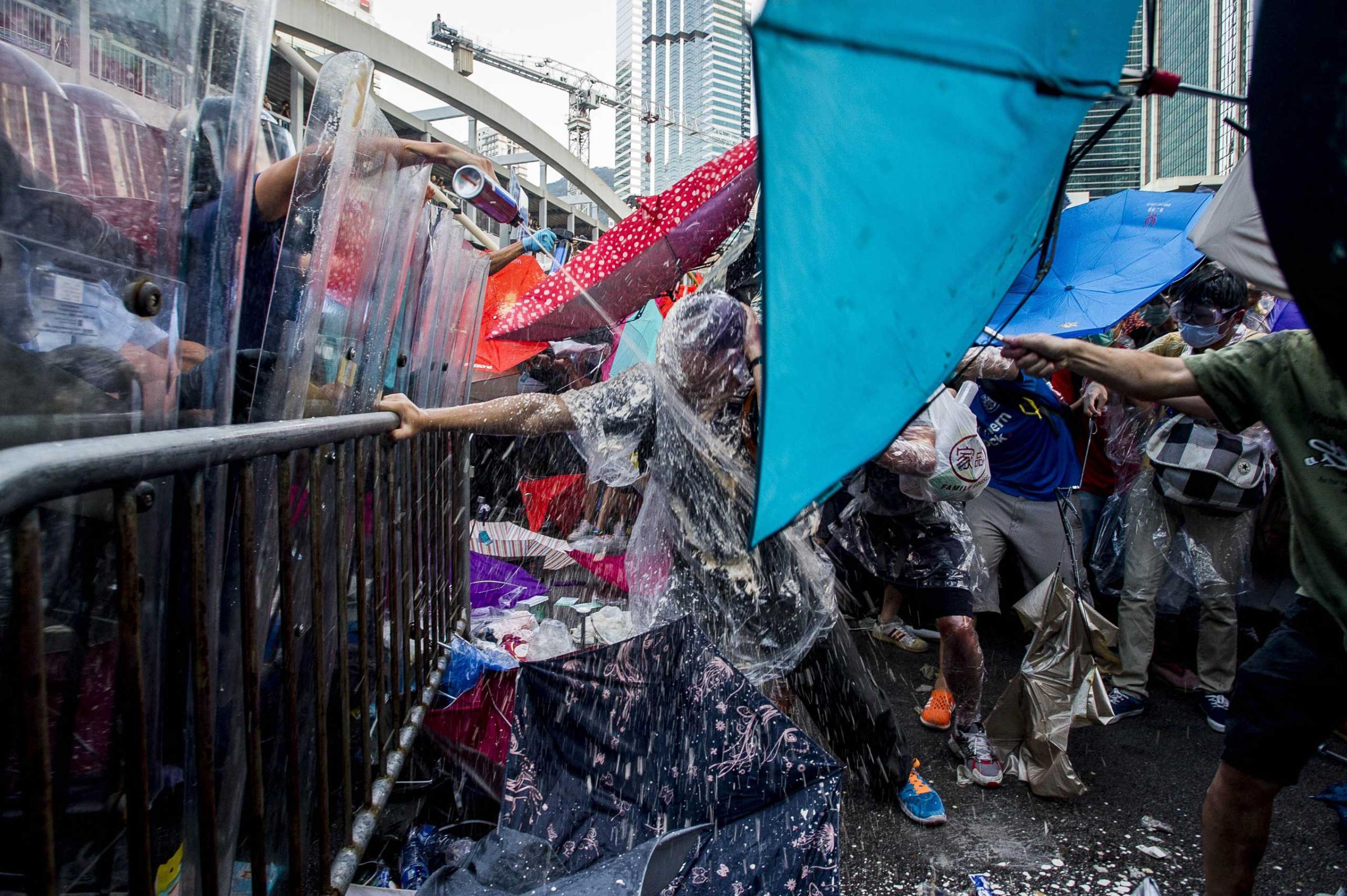
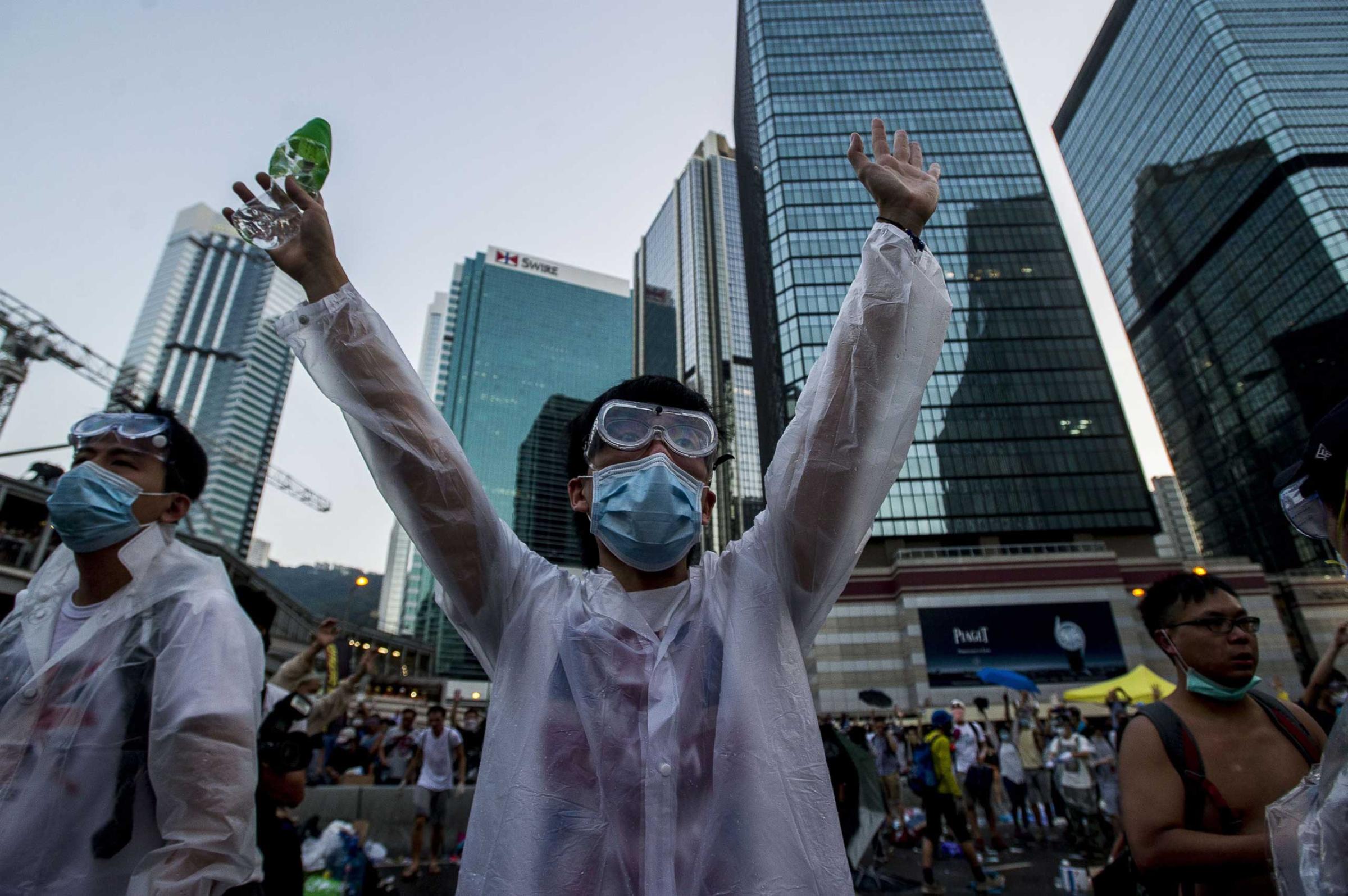
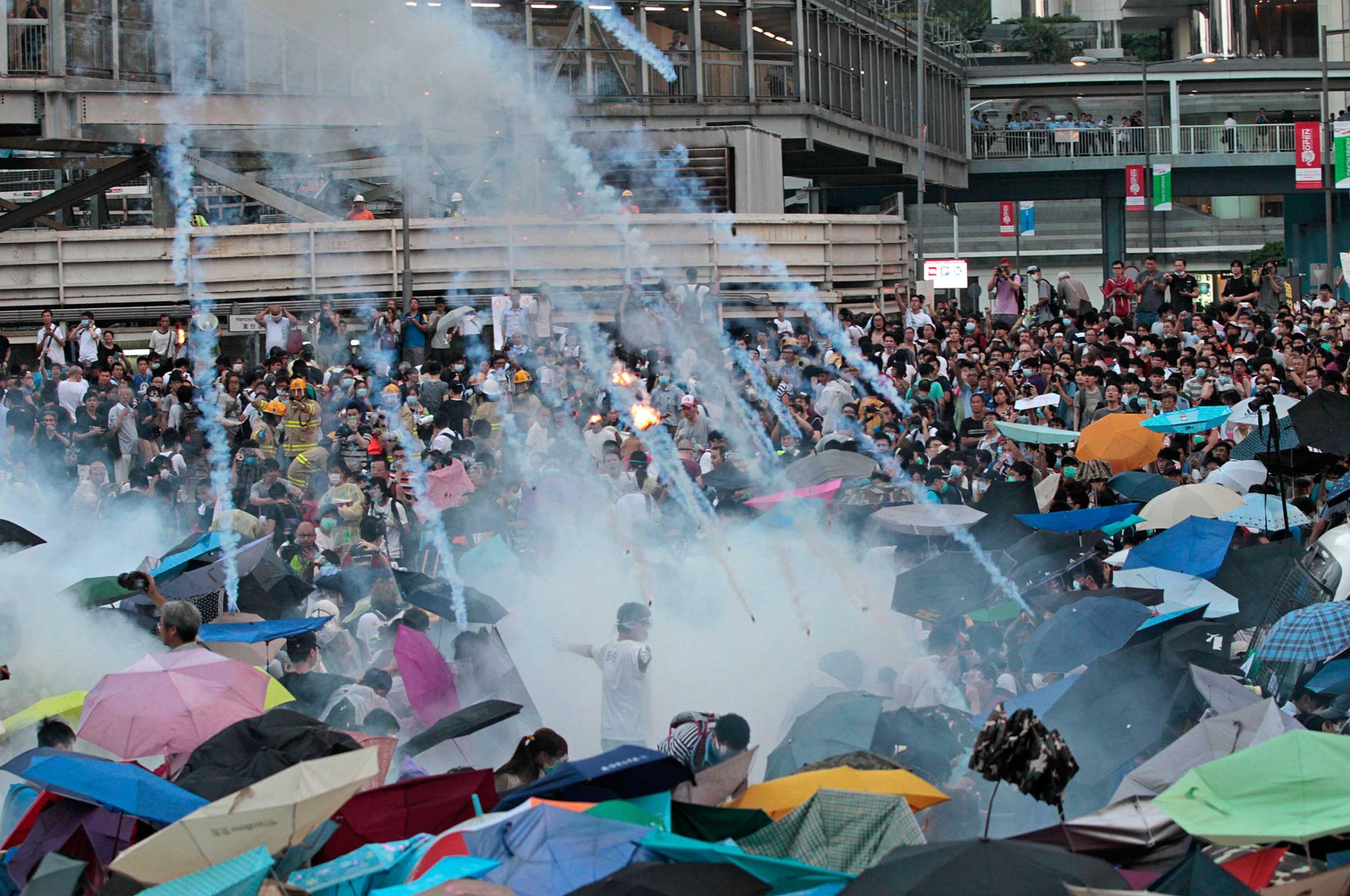
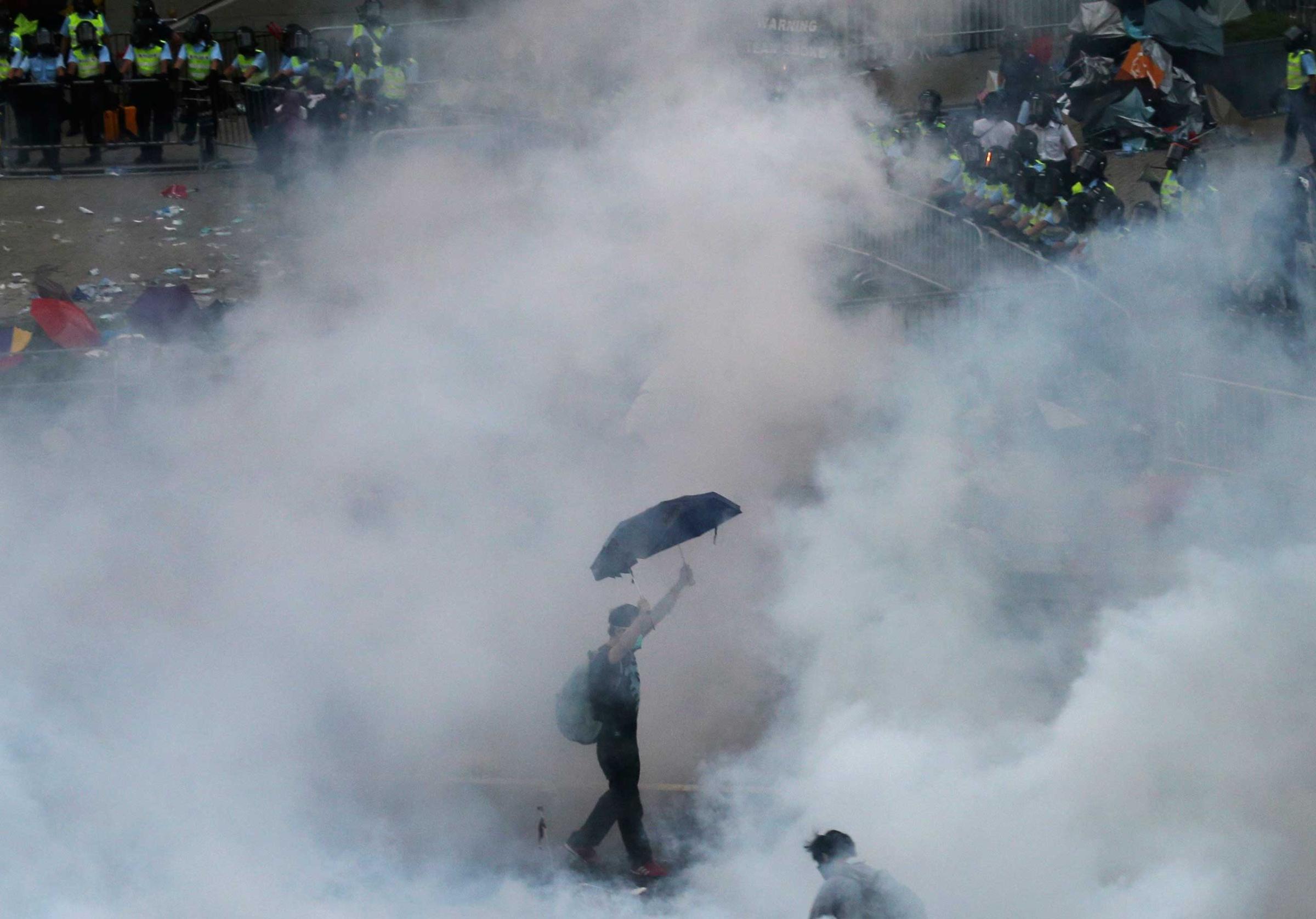
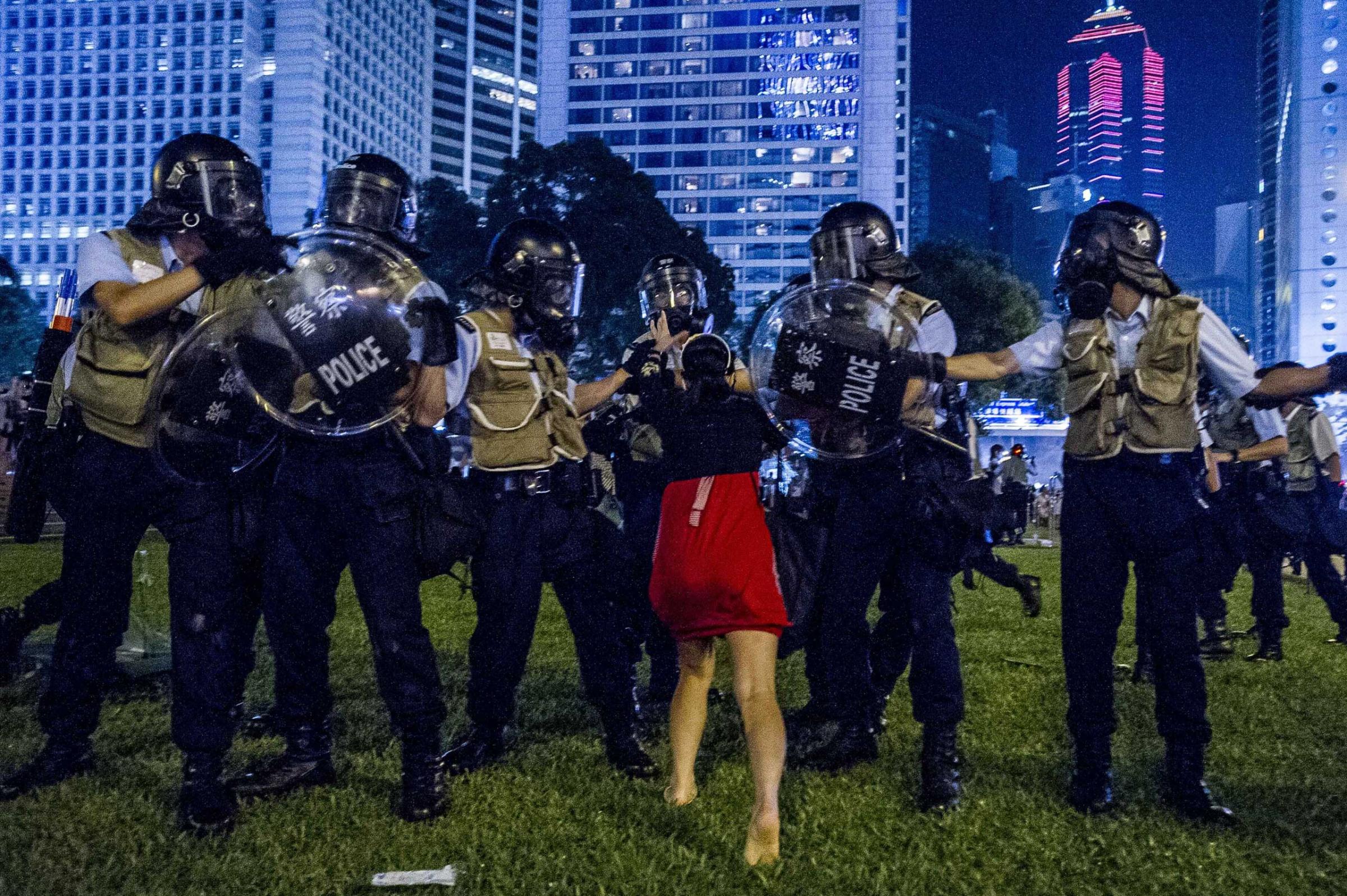
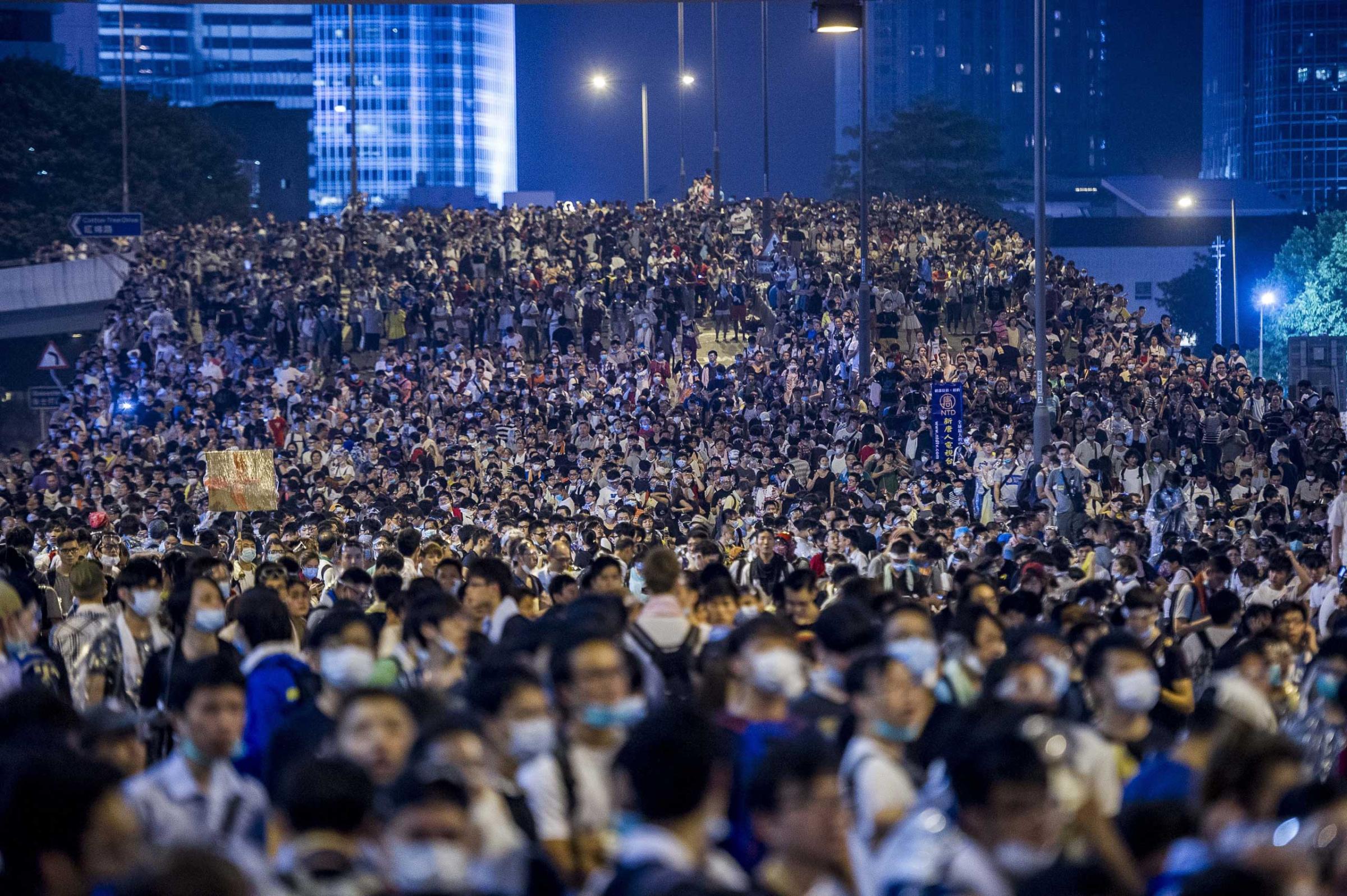
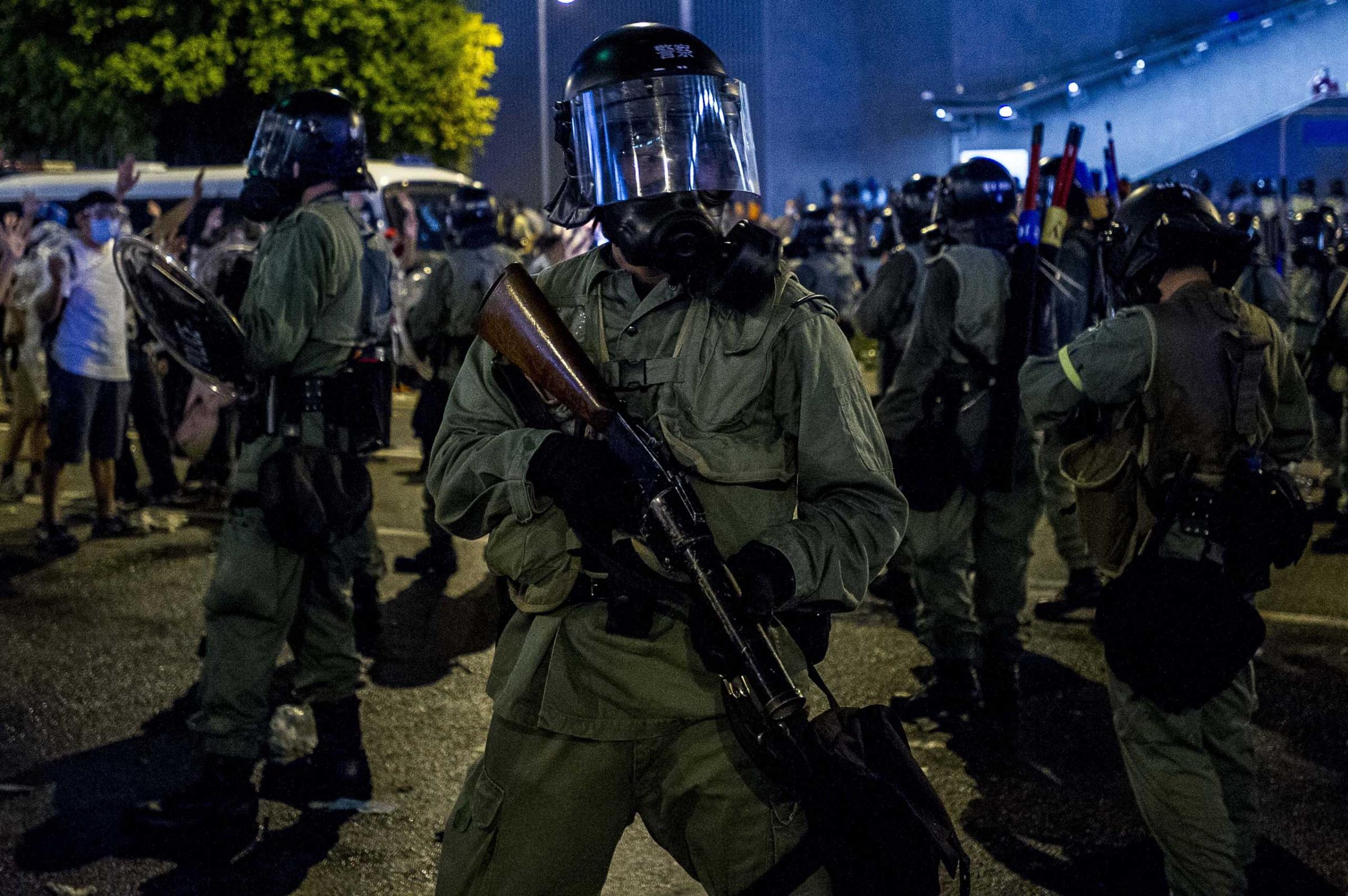
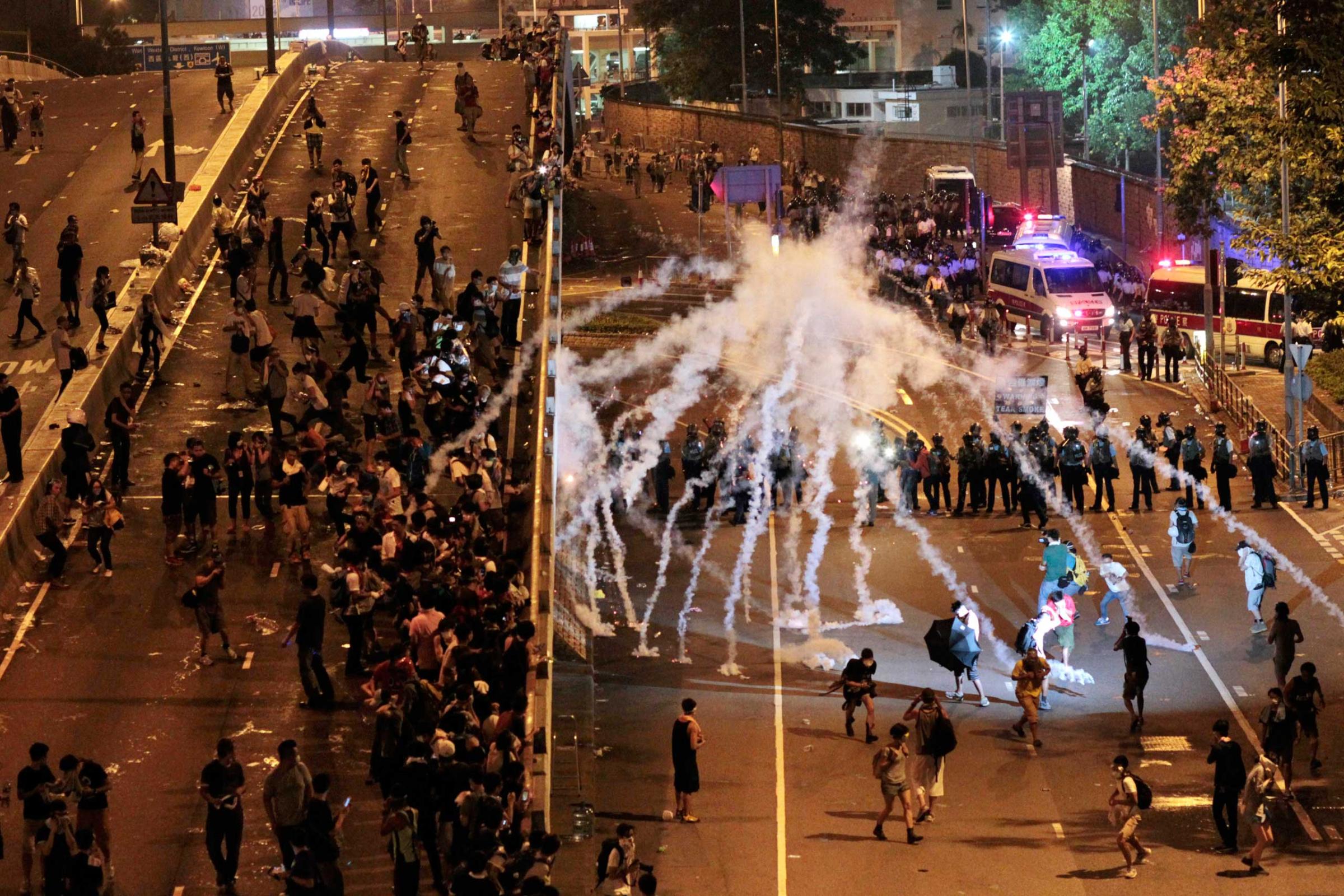
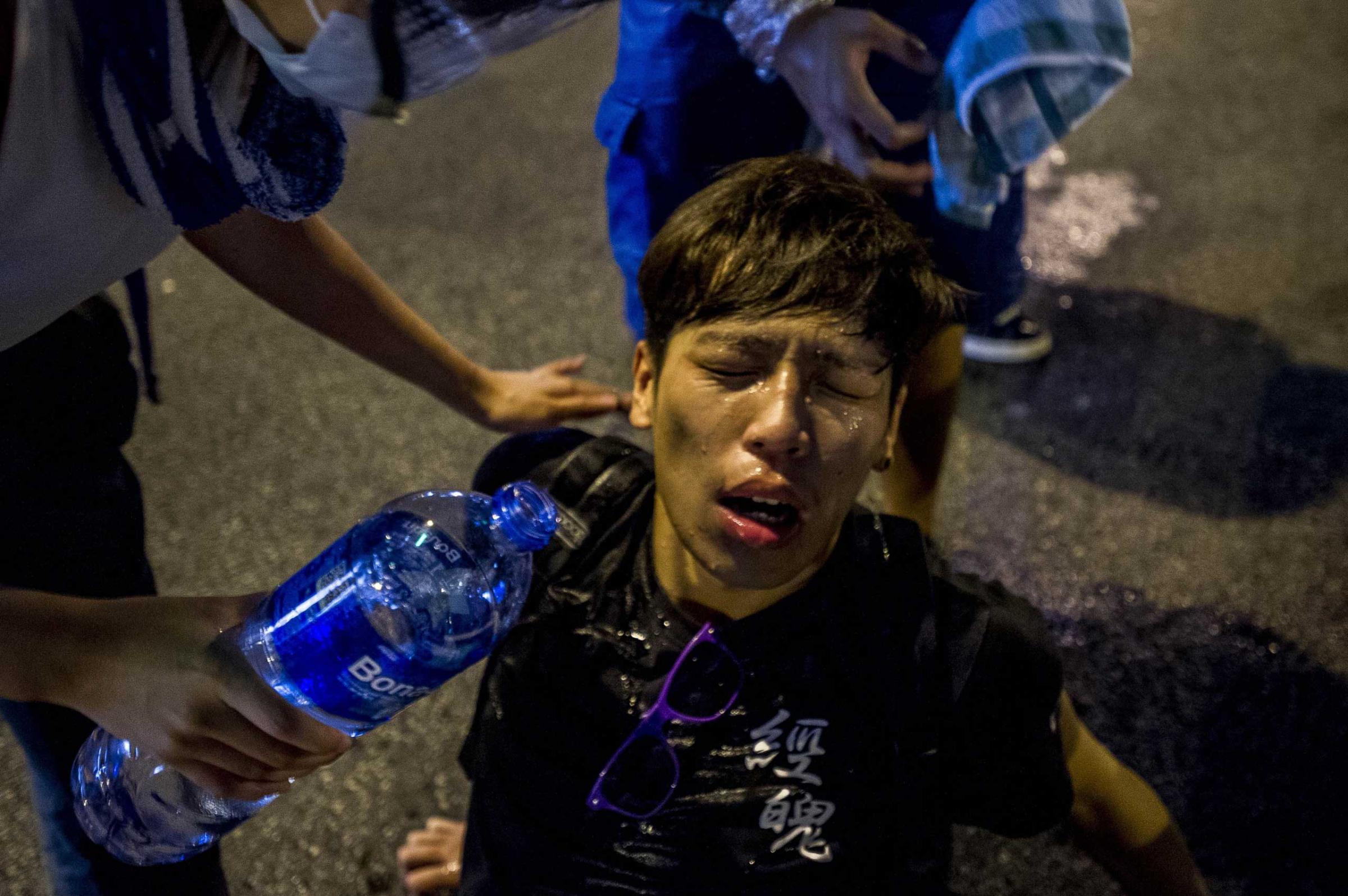
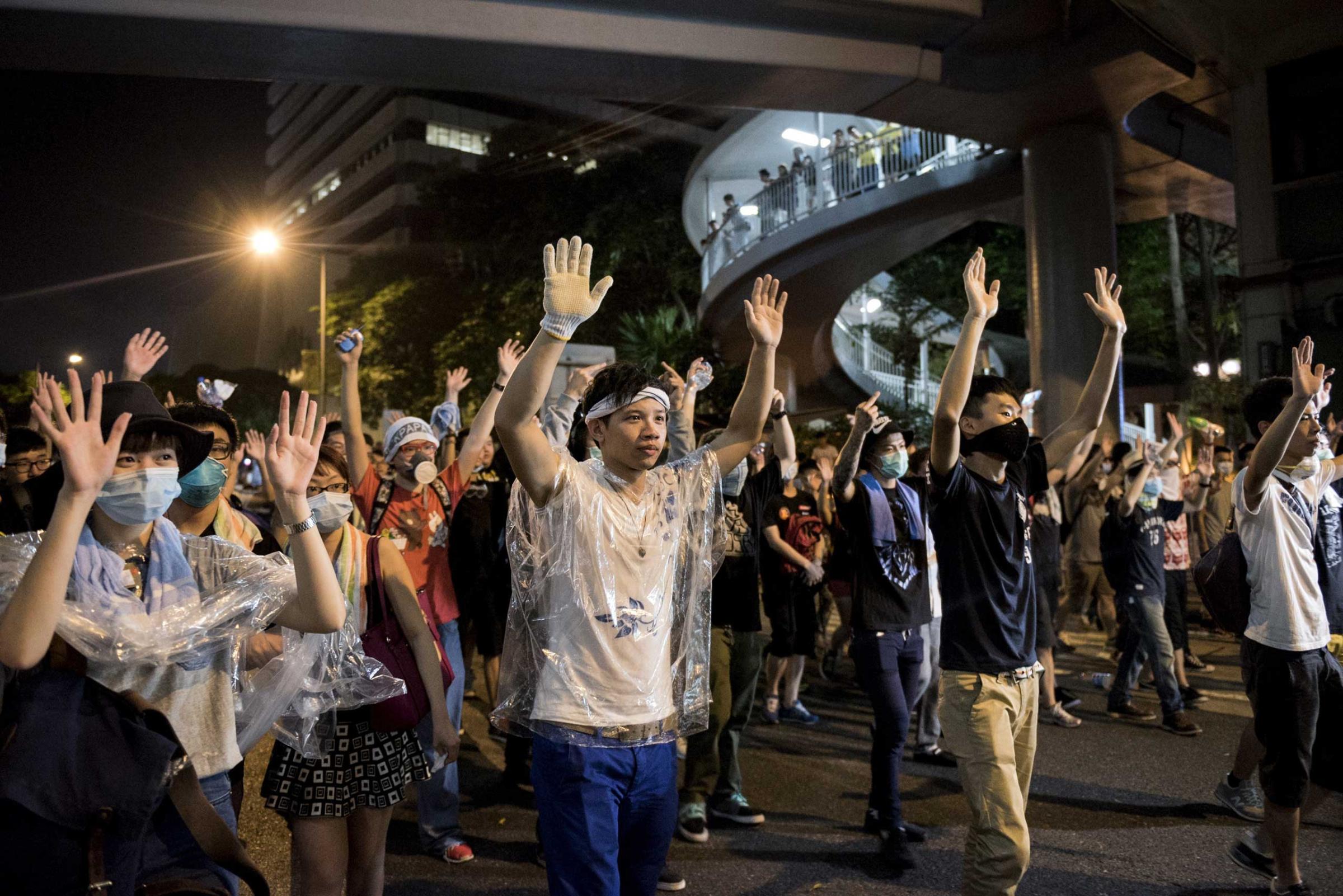
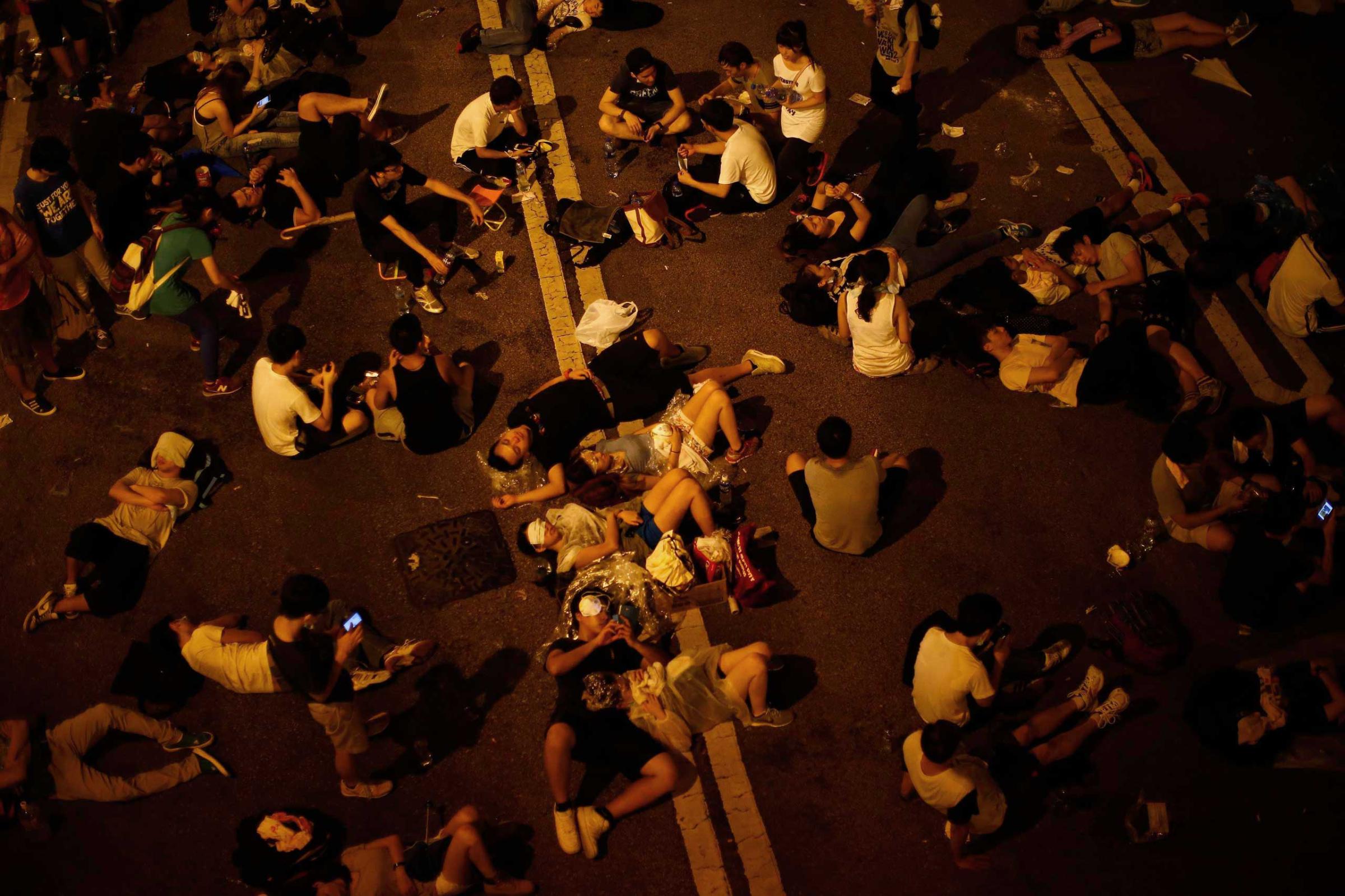
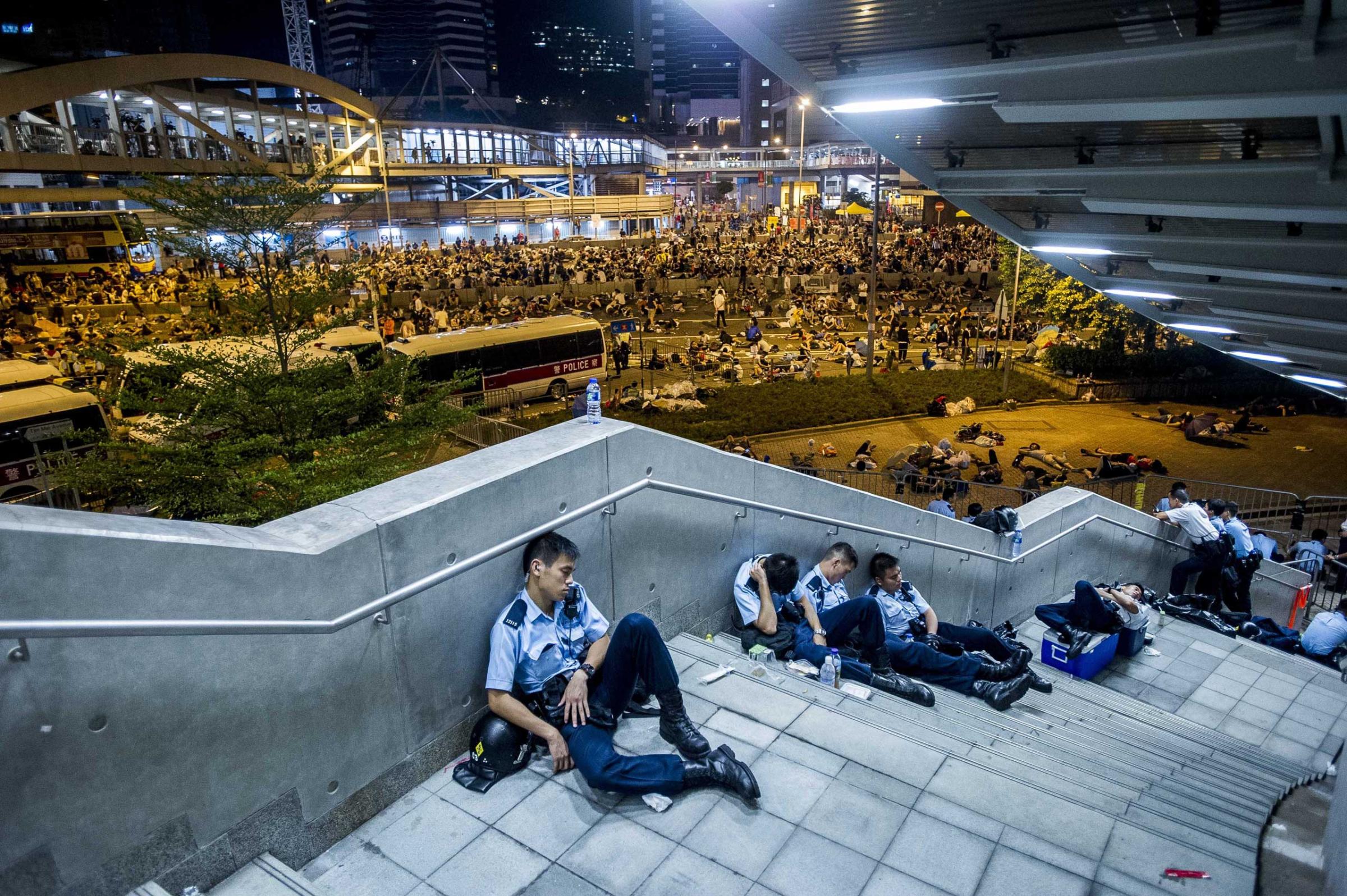
More Must-Reads from TIME
- Why Trump’s Message Worked on Latino Men
- What Trump’s Win Could Mean for Housing
- The 100 Must-Read Books of 2024
- Sleep Doctors Share the 1 Tip That’s Changed Their Lives
- Column: Let’s Bring Back Romance
- What It’s Like to Have Long COVID As a Kid
- FX’s Say Nothing Is the Must-Watch Political Thriller of 2024
- Merle Bombardieri Is Helping People Make the Baby Decision
Write to Elizabeth Barber / Hong Kong at elizabeth.barber@timeasia.com